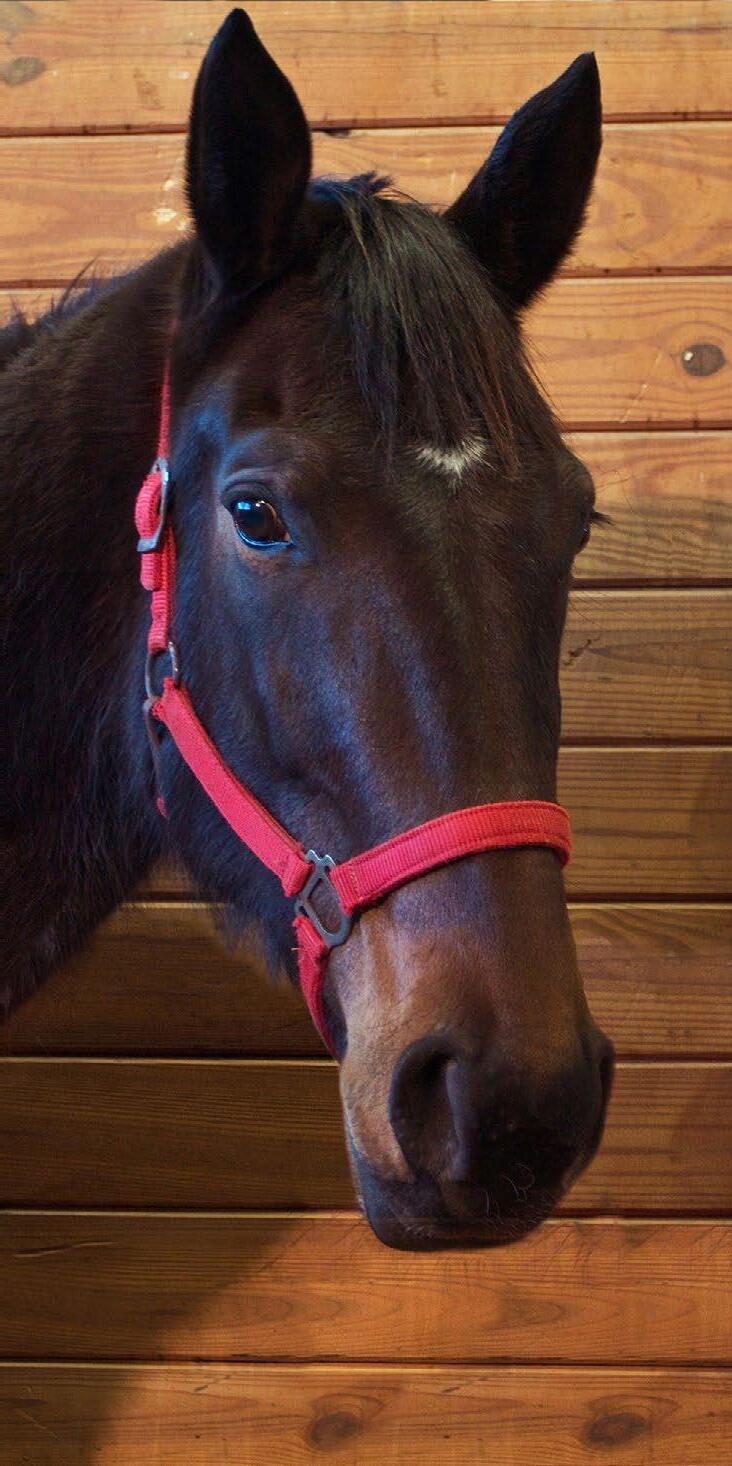

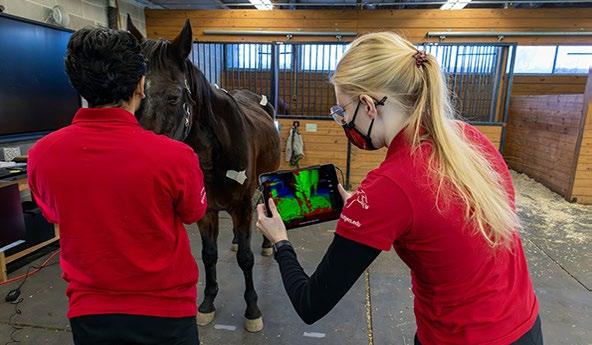








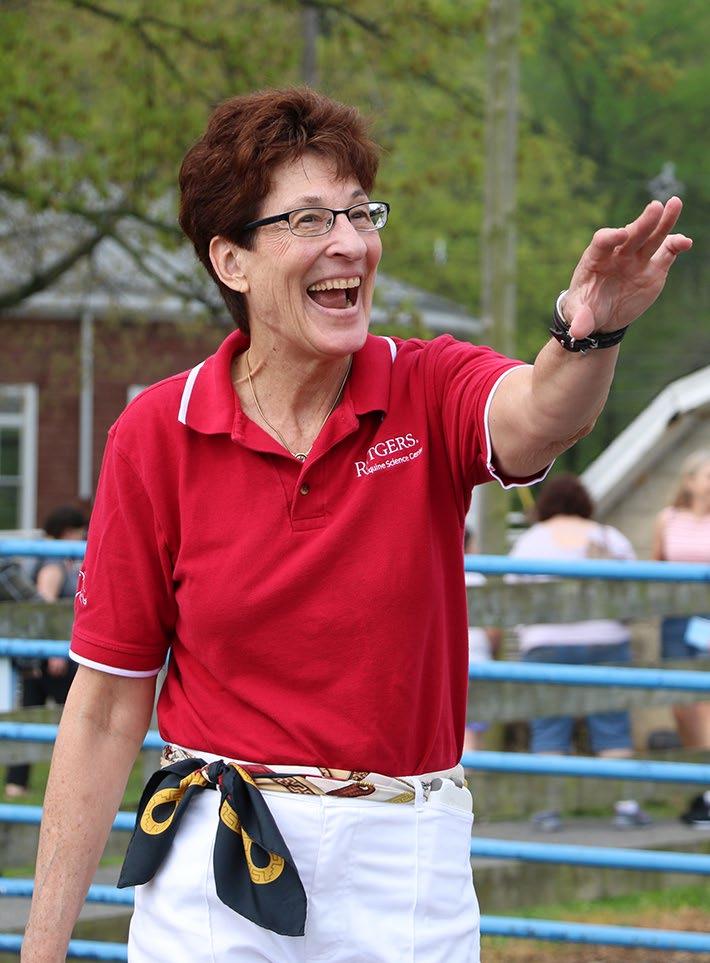
Dear Friends,
We Can’t Wait To See You At This Year’s
Ag Field Day at Rutgers Day!
County Ag Development Board. I was joined by panelists, Dr. Amy Butewicz, Tom Frieberger, and Al Ochsner. Over 100 people were in attendance and we had some lively discussion as we stressed the value of horses to agriculture in Monmouth County and the State of New Jersey.
The Center sends out congratulations to Taylor and Evan Ross who welcomed their first child Ellie on March 28! Taylor is currently on maternity leave and others in the Department of Animal Sciences are picking up some of her duties. We certainly will miss Dr. Ross on Ag Field Day where she plays a major role.
On March 29, the Cook Farm welcomed over 300 young people, parents, and club leaders to the annual Junior Animal Science Symposium. Ph.D. students Bryce Bitsie and Lexie Birch gave an overview of barn safety and a barn safety scavenger hunt which was the topic of discussion for the afternoon Jeopardy game. Dr. Williams gave a pasture walkthrough to stress the importance of pasture for horses. I rounded out the day with a lecture of “Careers in the Equine Industry” where I highlighted the many options young people have, and also shared tips on successfully getting a job in the industry. See feature story on the Front Page
On Thursday, April 24 the Center is hosting two sessions of Take your Kids to Work Day. We have plenty of things for them to do in the Equine Exercise Physiology Lab.
We at the Equine Science Center have had a busy winter since we visited last in the January newsletter. Hopefully after this cold winter we can finally look forward to some moderation in temperature and decrease in these gusty winds!
Dr. Alisa Herbst was busy from this past summer until the end of the fall semester working on research into ostarine. This multifaceted research looked at different markers of how ostarine might effect the horse when administered under certain conditions. To learn more about the research, as well as some of the findings, visit the From The Lab section of the newsletter on Page 12
At the end of January, I lectured in the New Jersey Ag Leadership Development Program which was followed by a tour of the Equine Exercise Physiology Lab (see story on Page 8). The class then followed up with an off-site visit to Congress Hill Farm in Monroe where they saw harness horses in training and had an opportunity to talk to the wonderful folks at Special Strides, the therapeutic riding center where Ellen Rankins conducted her Ph.D. research with veterans with PTSD.
On February 1, Dr. Carey Williams put together an in-person Horse Management Seminar, which was followed on three consecutive Tuesday evenings with the Horse Management Seminar: Webinar Series, its virtual counterpart. See Page 16 and Page 20 respectively for the highlight of each event.
March 1 saw our students competing in “The 2025 Northeast Student Affiliate (NESA) Competition”at Penn State. They did a great job, and even placed! Learn more about their trip on Page 10
On March 10 we had a visit from the New Jersey State Police Mounted Patrol unit who came to campus to see our equine facilities and to seek our advice as they move forward in securing a new home for their operations.
On March 12, I led a discussion about the importance of the equine industry for the inaugural Farm Summit for the Monmouth
I certainly hope that you all will visit us on Saturday, April 26 for Ag Field Day at Rutgers Day from 8 AM to 4 PM. The horse show will take place in the field along College Farm Road and the Equine Exercise Physiology Lab will be open. Stop in and say “hi”, get your picture taken with Jolee and Art, and get in line early for the high-speed treadmill demos at 1 and 2 PM. Check out the flyer on Page 9!
Finally, make sure to apply for our Doris C. Murphy Scholarship, and Ronald S. Dancer Memorial Scholarship, if you qualify. To lean about the qualifications, and to apply, take a look at the flyers on Page 15 and Page 22 respectively.
And if you have a farm, be sure to apply to our Gold Medal Horse Farm program. You can learn all about it on Page 23.
In closing I would like to share that this will be my last column for the Center’s newsletter. After 47 years of service to horses and the entire equine industry I am retiring effective July 1. It has been my pleasure to have been able to assist many of you in your horse care and management and challenges that the industry faces as it vies to remain viable and sustainable.
Come visit on Ag Field Day because that will be my last as a faculty member as well. I can’t believe that Dr. Diane Simoncini and I started the first Ag Field Day horse show in April of 1972!
The Center, The Meadowlands Racetrack and Entertainment and the SBOA-NJ will be hosting a retirement celebration on Saturday, July 12 from 6-10 PM on Meadowlands Pace night at the racetrack. A save the date flyer can be found on Page 14. More details will be made available and sponsorship opportunities will also be available. For further information contact Kyle Hartmann at: kylehart@njaes.rutgers.edu
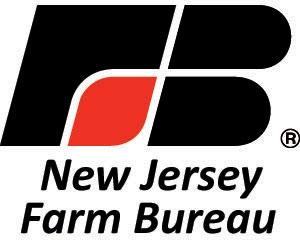
New Jersey Farm Bureau’s primary purpose is to represent the overall interests and improve the financial well-being of farmers and our $800 million industry. NJFB activities are supported through voluntary membership and annual dues. Members have access to:
• Staff assistance on farming issues and regulatory problems.
• Educational workshops on topical issues such as farm labor, wildlife damage, and zoning.
•Weekly updates on legislation news and regulations affecting all aspects of farming.
It pays to be a NJ Farm Bureau member! For a full list of membership levels and benefits, or to sign up, visit: www.njfb.org.

UMH Properties, Inc., is a real estate investment trust that owns and operates manufactured home communities in seven states throughout the northeast.
UMH has been in business since 1968, operating as a public company since 1985. Owning a portfolio of over 90 manufactured home communities, housing approximately 15,700 home sites.
In addition, owning over 810 acres of land for the development of new sites. It is our mission as a company to provide the best quality affordable home for the hard working residents of Pennsylvania.
UMH communities are perfect for residents of all ages, let us help up you find your dream home today.
For more information about UMH Properties, Inc., please visit: www.umh.com
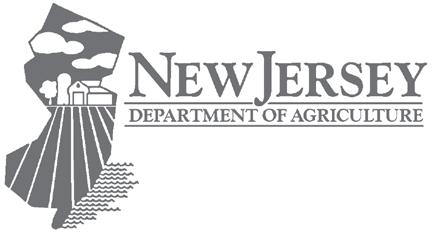
The New Jersey Department of Agriculture (NJDA) is an agency which oversees programs that serve virtually all New Jersey citizens. One of the Department’s major priorities is to promote, protect and serve the Garden State’s diverse agriculture and agribusiness industries.
In addition to the programs we offer to support production agriculture, NJDA also manages programs that feed schoolchildren, distribute surplus federal foods to soup kitchens and pantries that serve our needy citizens, conserve precious soil and water resources, protect farmland from development and preserve it for future agricultural use, expand export markets for fresh and processed agricultural products, and promote our commercial fishing industry, and administer the complete program of agriculture, food and natural resource education, which includes the State FFA Association.
For more information about NJDA, please visit: www.nj.gov/agriculture
Boehringer Ingelheim Animal Health is the second largest animal health business in the world, with presence in more than 150 countries, and a significant presence in the United States, with more than 3,100 employees in places that include Georgia, Missouri, Iowa, Minnesota, New Jersey and Puerto Rico.
The lives of animals and humans are interconnected in deep and complex ways. We know that when animals are healthy, humans are healthier too. Across the globe, our 9,700 employees are dedicated to delivering value through innovation, thus enhancing the well-being of both. Respect for animals, humans and the environment guides us every day. We develop solutions and provide services to protect animals from disease and pain. We support our customers in taking care of the health of their animals and protect our communities against life- and societythreatening diseases.
For more information about Boehringer Ingelheim Animal Health, please visit: www.boehringer-ingelheim.us
Continued from Pg. 1
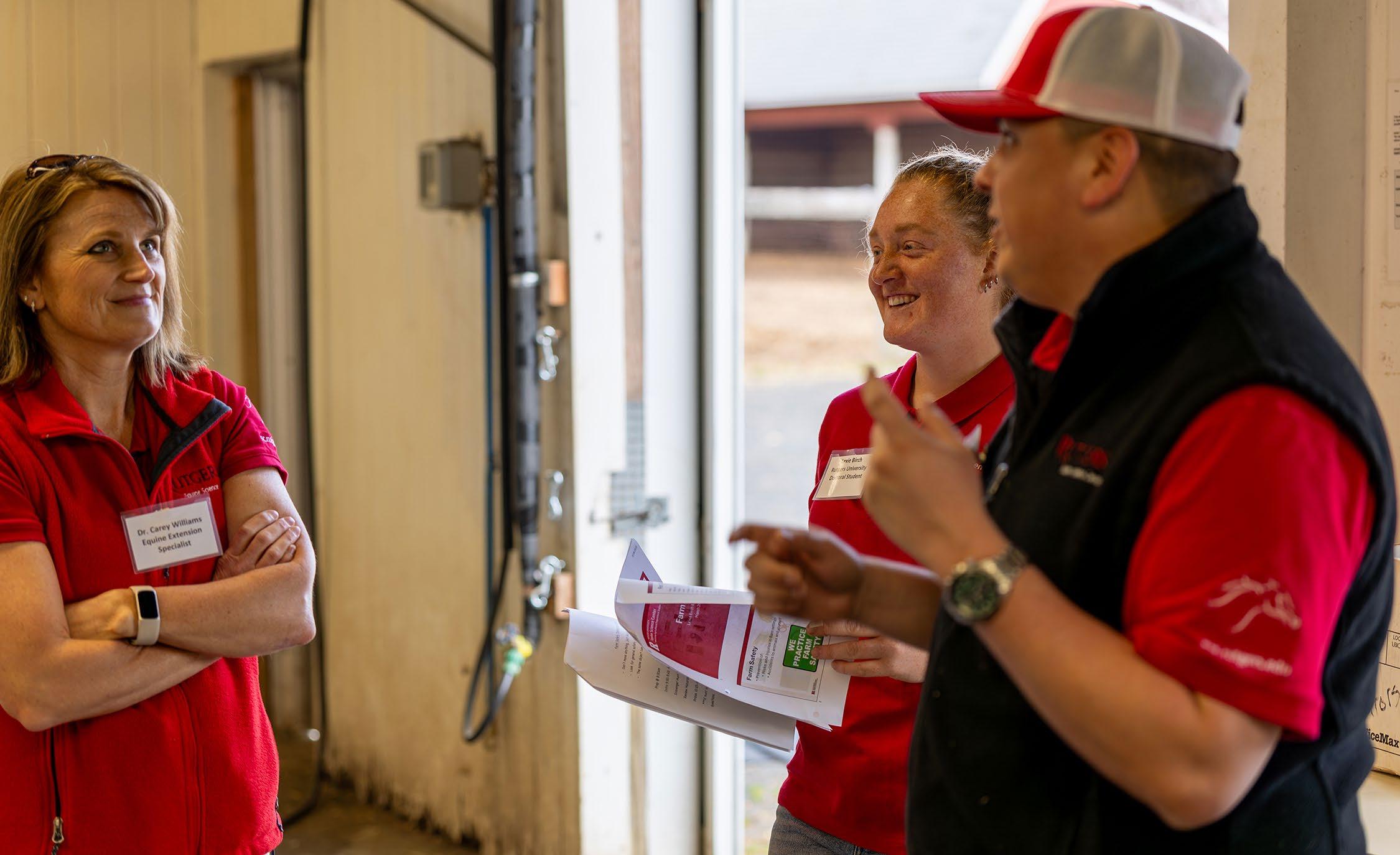
The winning team received Equine Science Center Lord Nelson beanie babies as a prize!
Dr. Carey Williams, Rutgers University - Equine Extension Specialist gave a lecture on “Pasture is Important for your Horse!!” where attendees learned about the important role that pasture plays in your horse’s nutrition and how to evaluate a pasture.
She followed this with a “Barn Management Jeopardy” game, with the help of Bryce and Lexie, where attendees were tested on what they learned during the morning sessions.
Winners were allowed to pick from a grab bag of items, including the Farm Safety DVD, to take
home with them as their prize.
Rounding out the day, Dr. Karyn Malinowski, Rutgers University, Equine Science Center Director, Equine Extension Specialist; gave a talk on “Careers in the Horse Industry.”
The talk provided an overview of the types of careers that exist in the equine industry, and also tips on positioning oneself in a positive manner to ensure securing a position.
Attendees of the talk went home with an “Equine Science 4 Kids!” sports-bag, as well as the Center’s famous “Equine Science 4 Kids! Activity Book”.
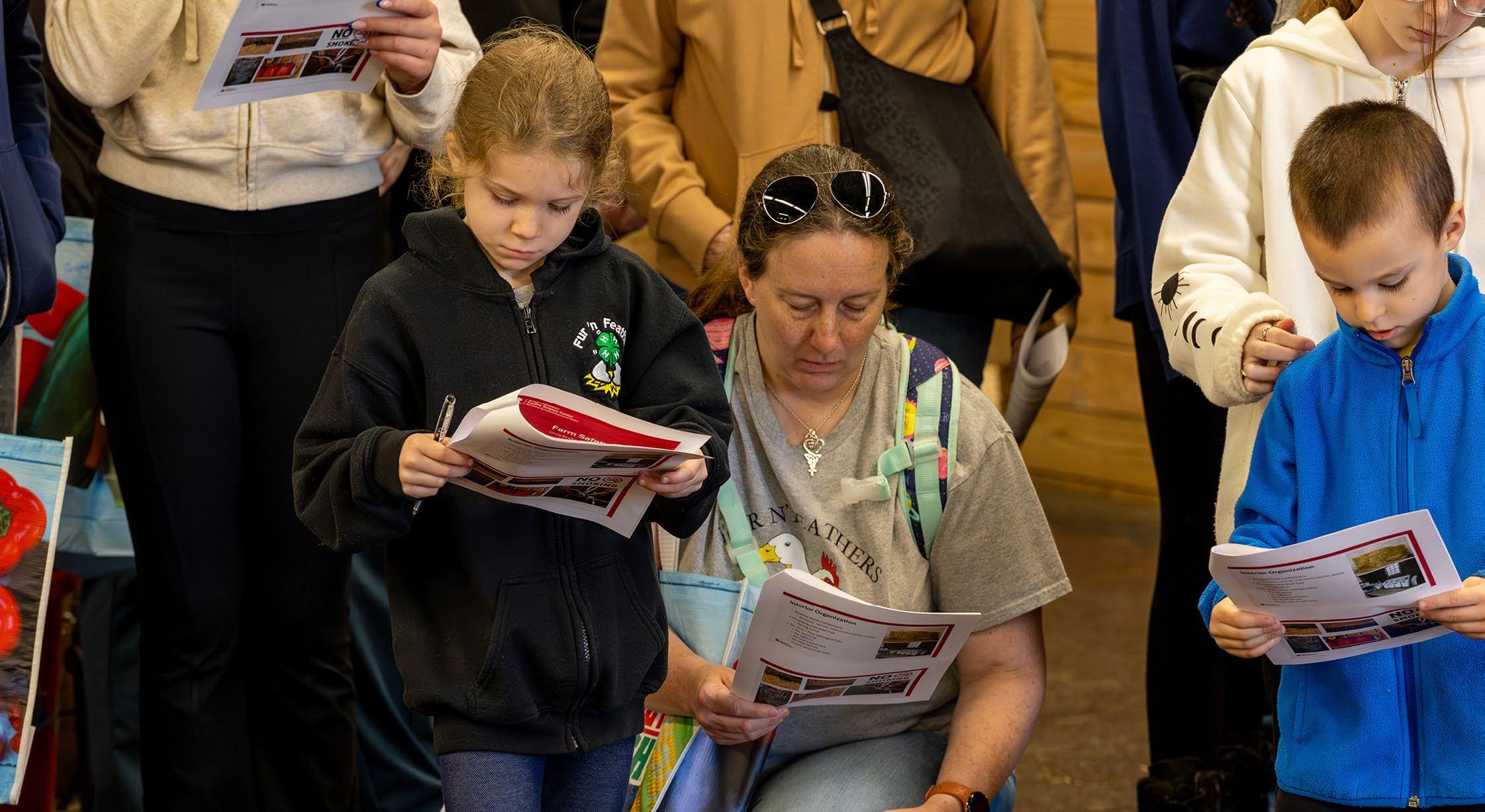
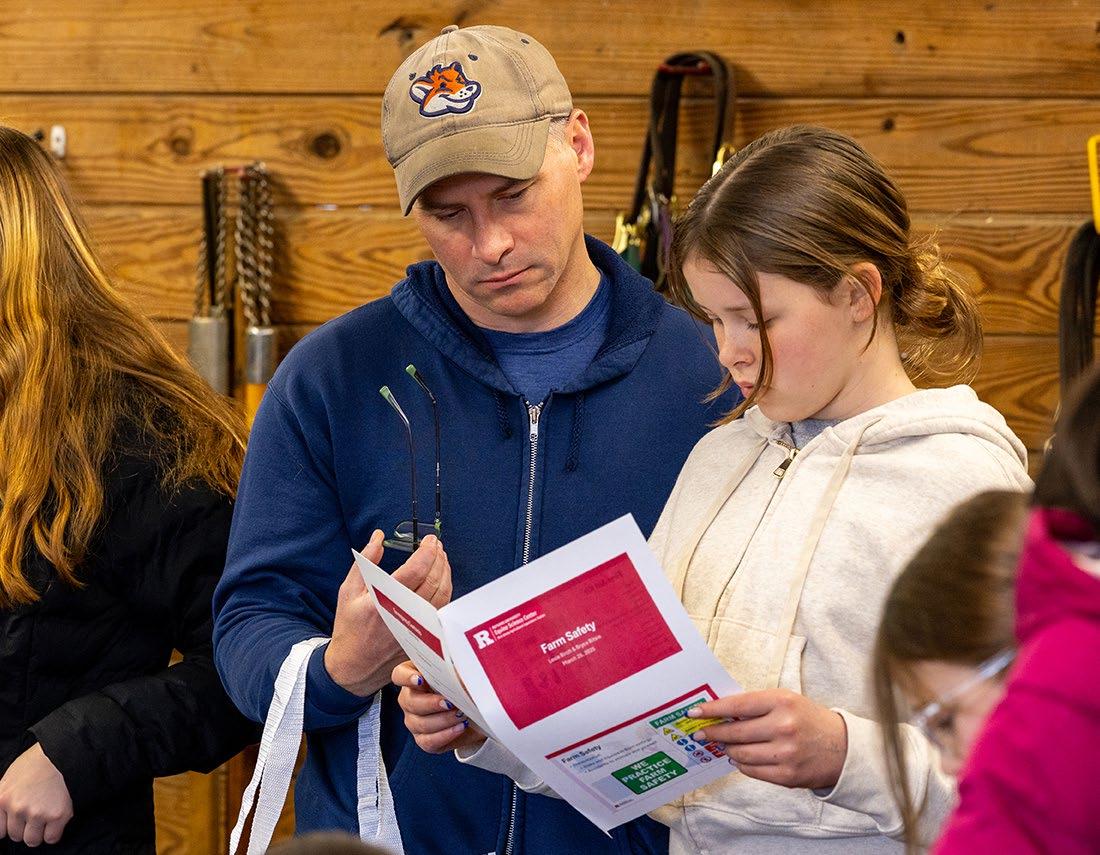
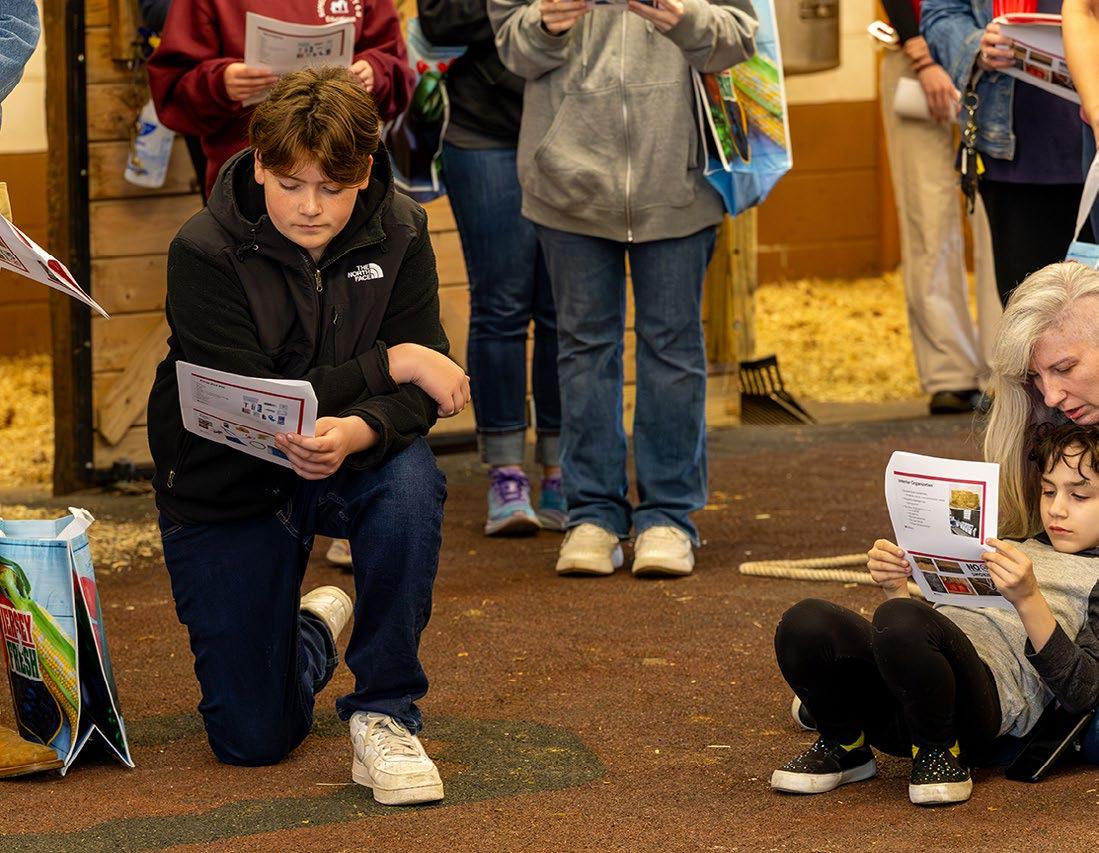
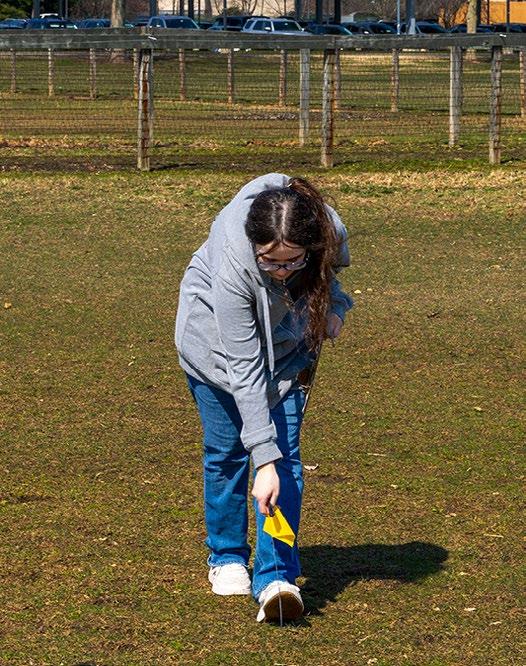
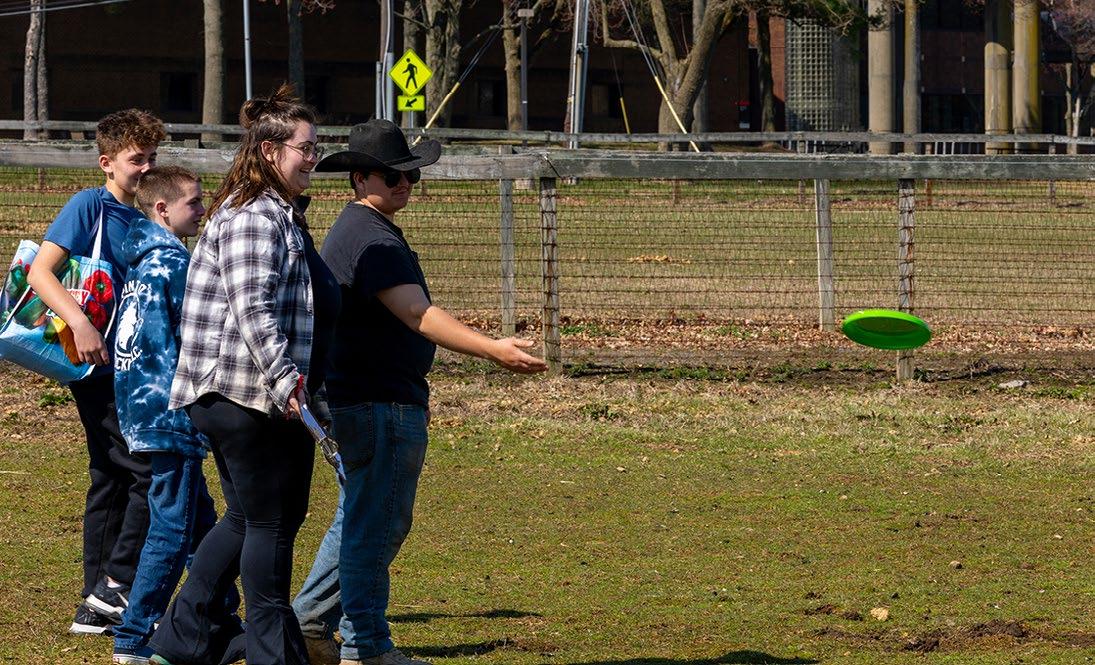
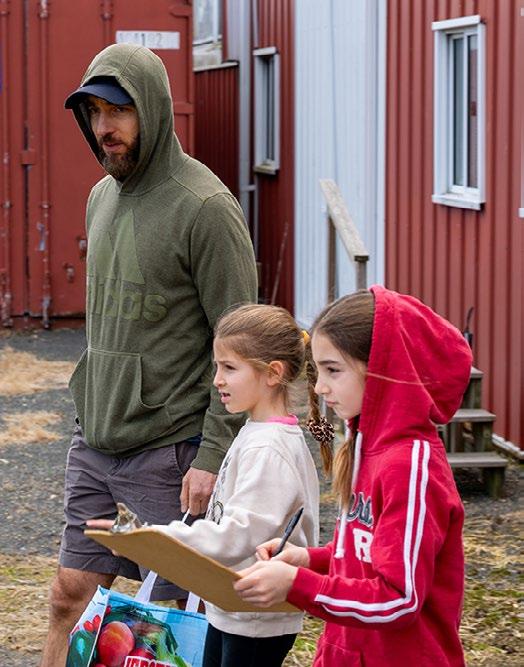
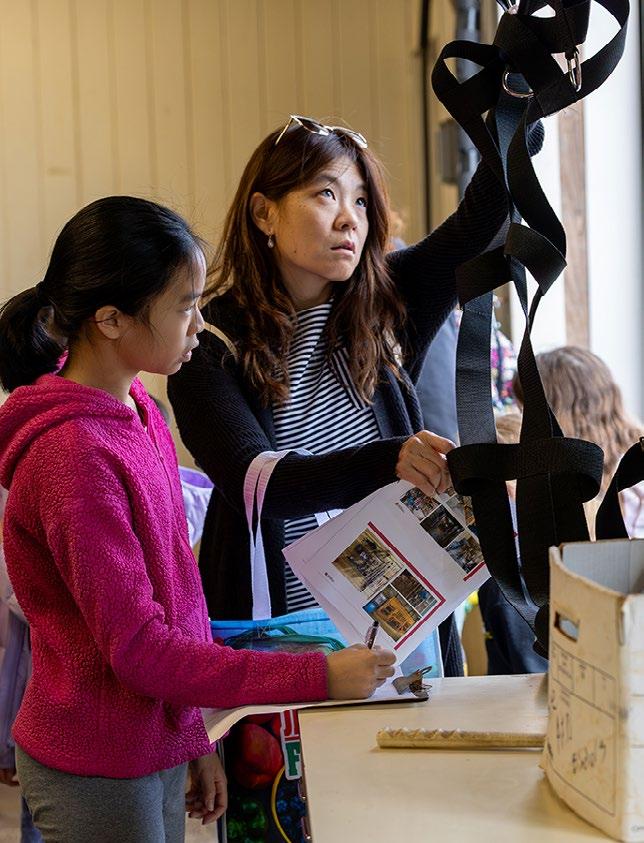
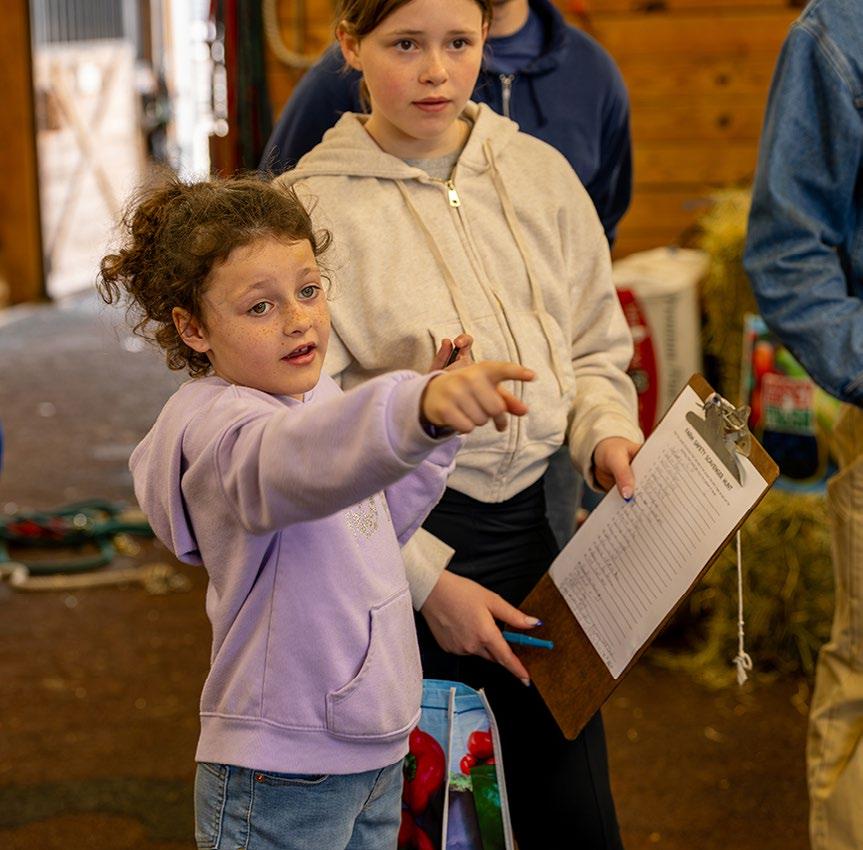
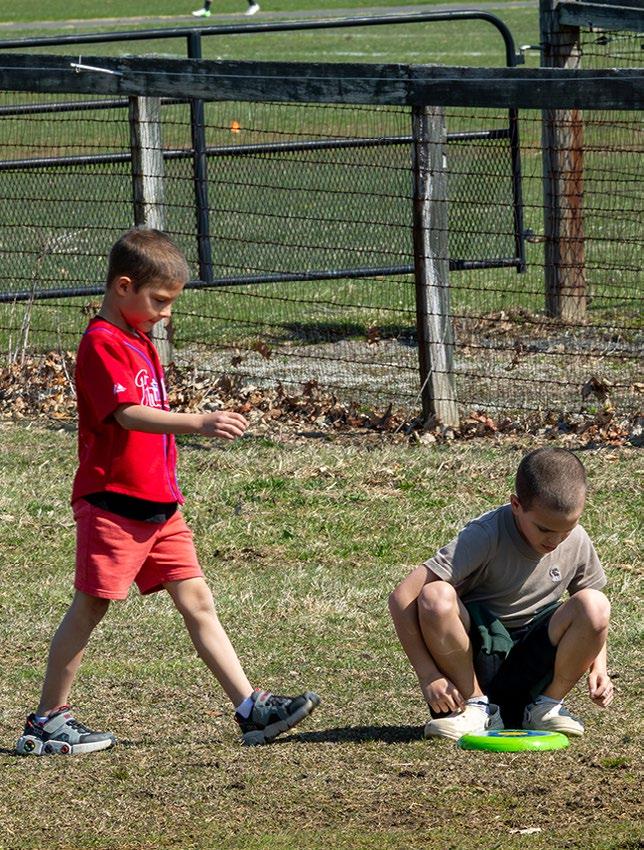
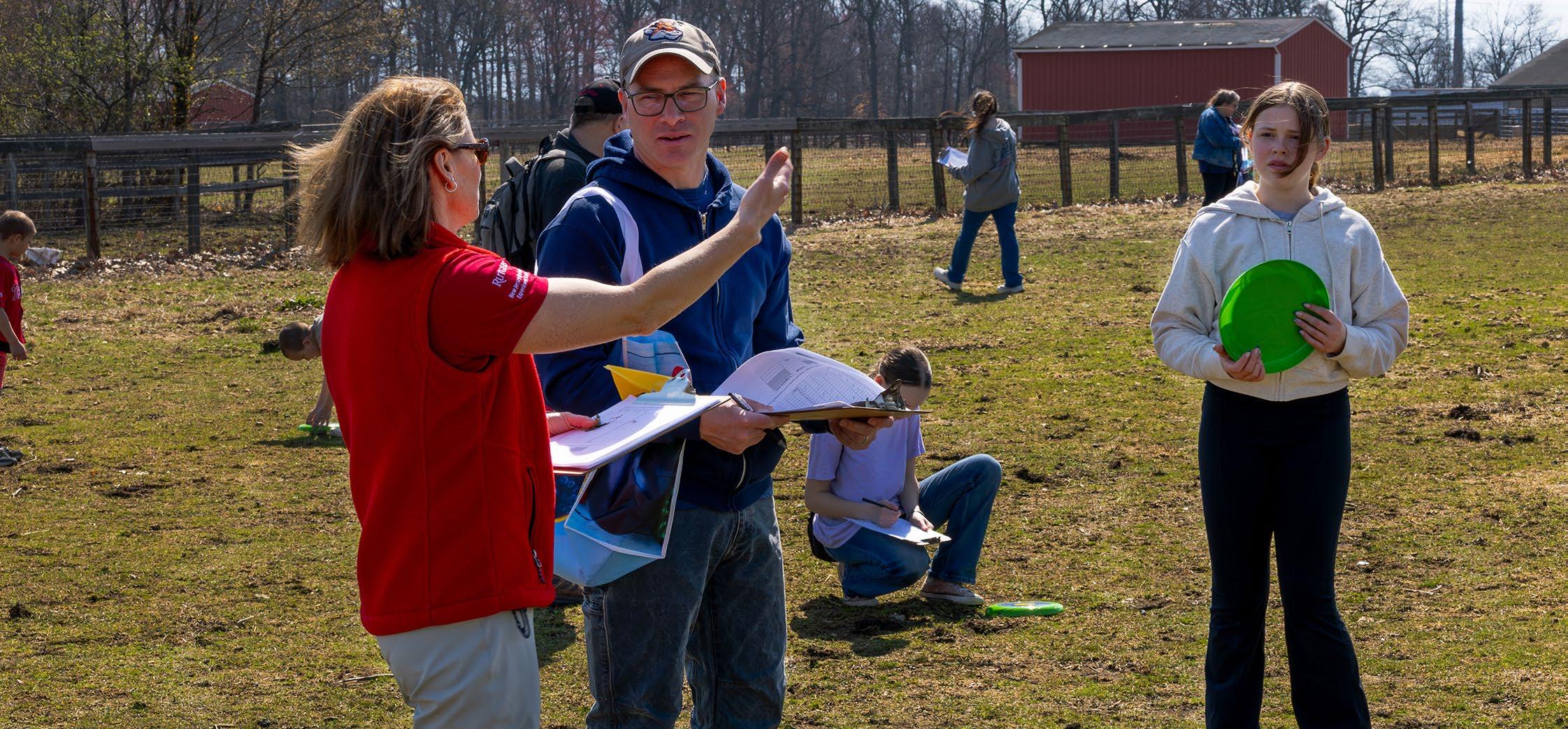
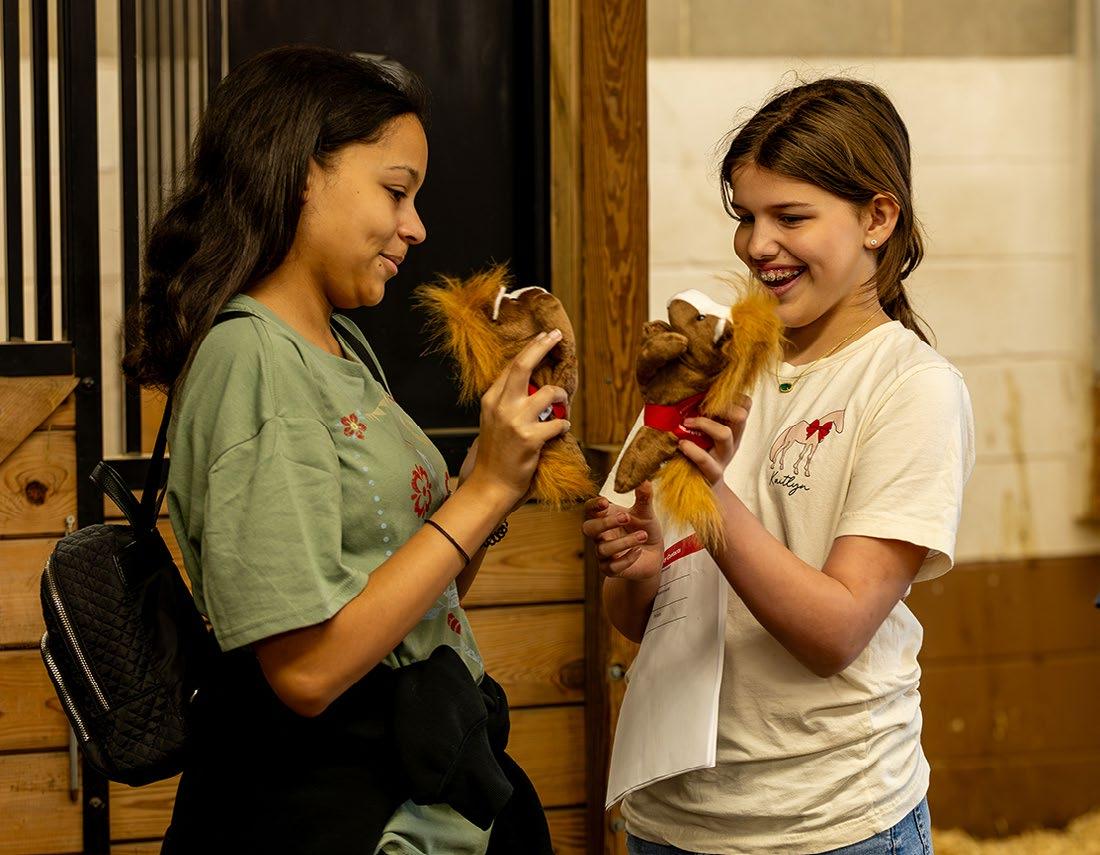
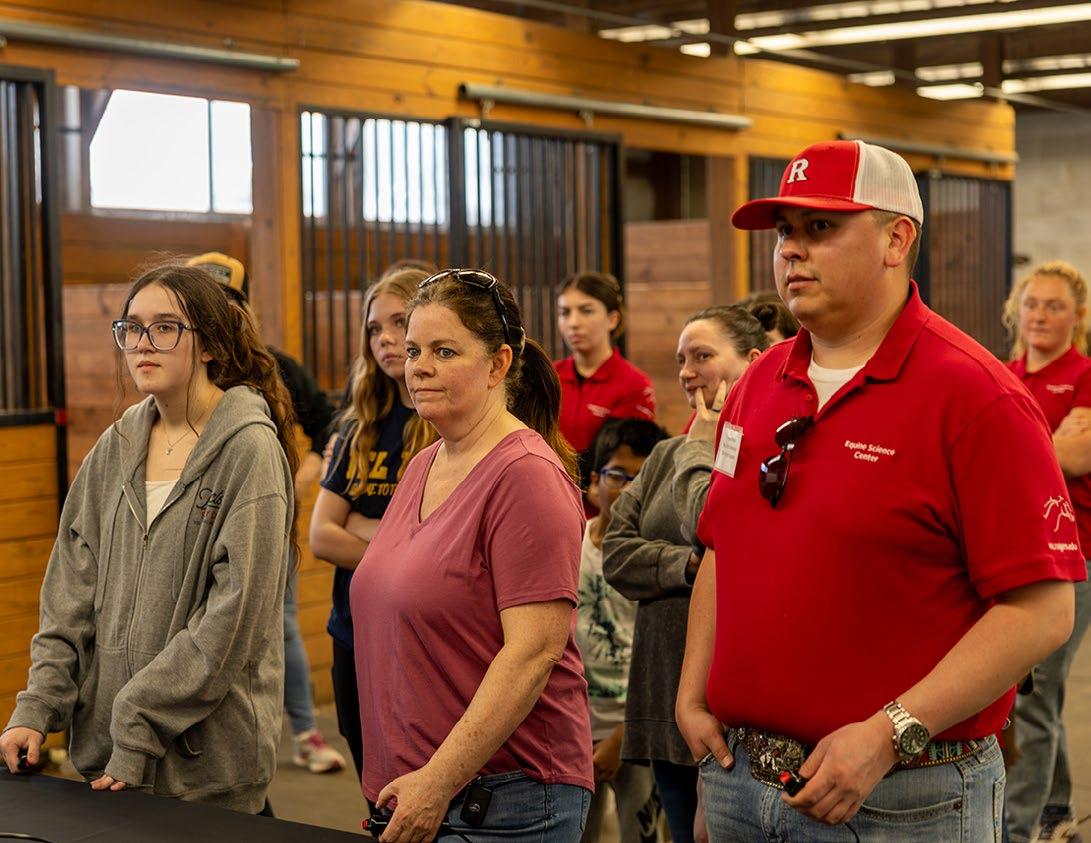
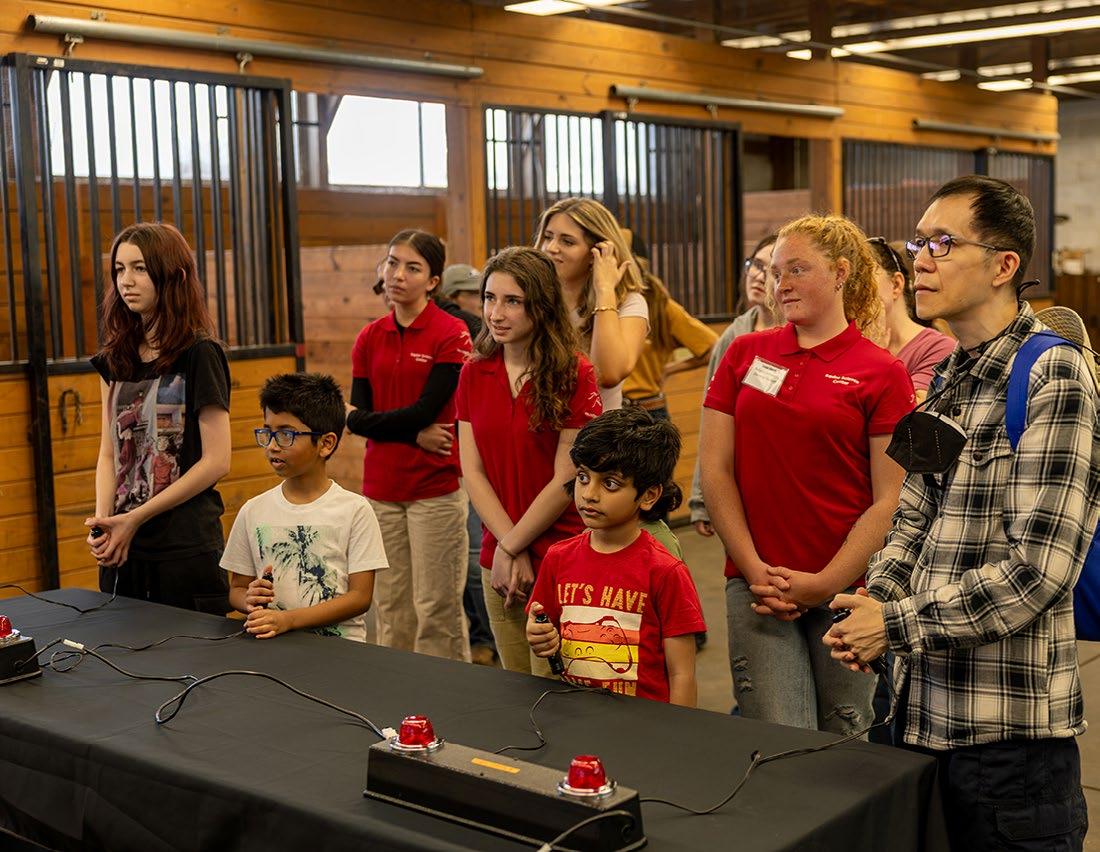
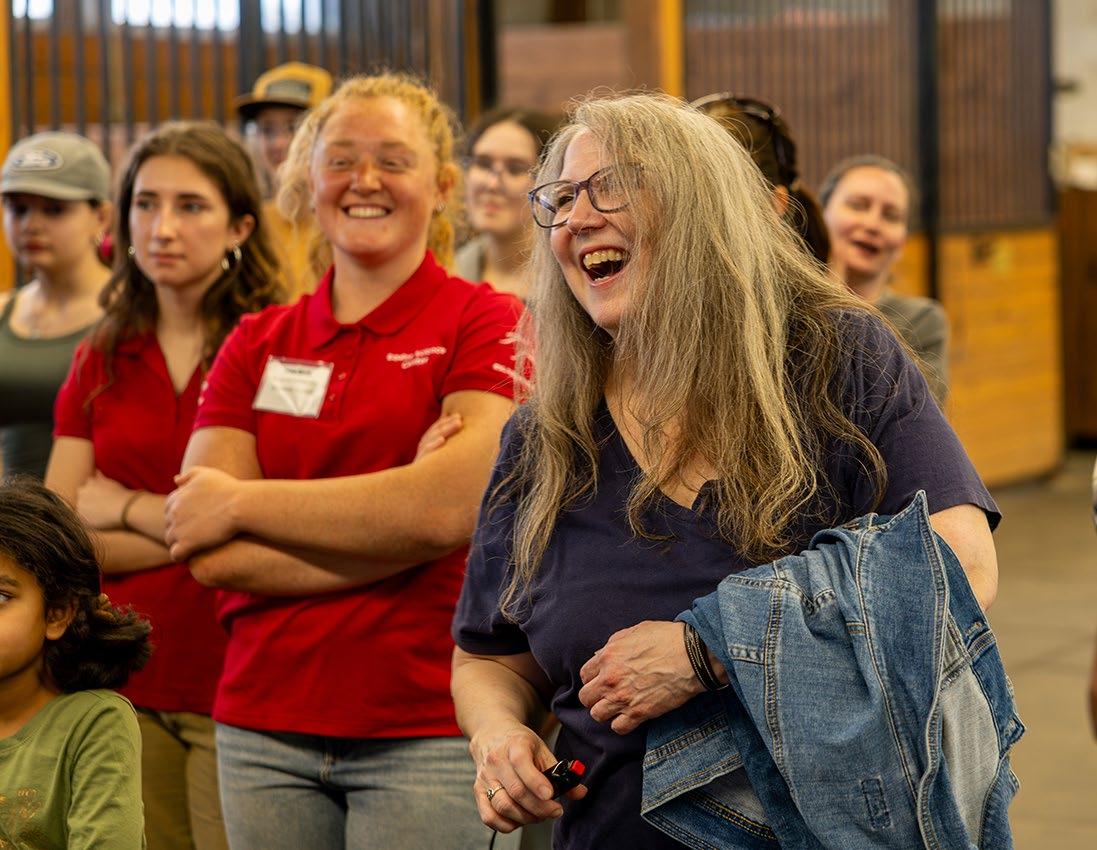
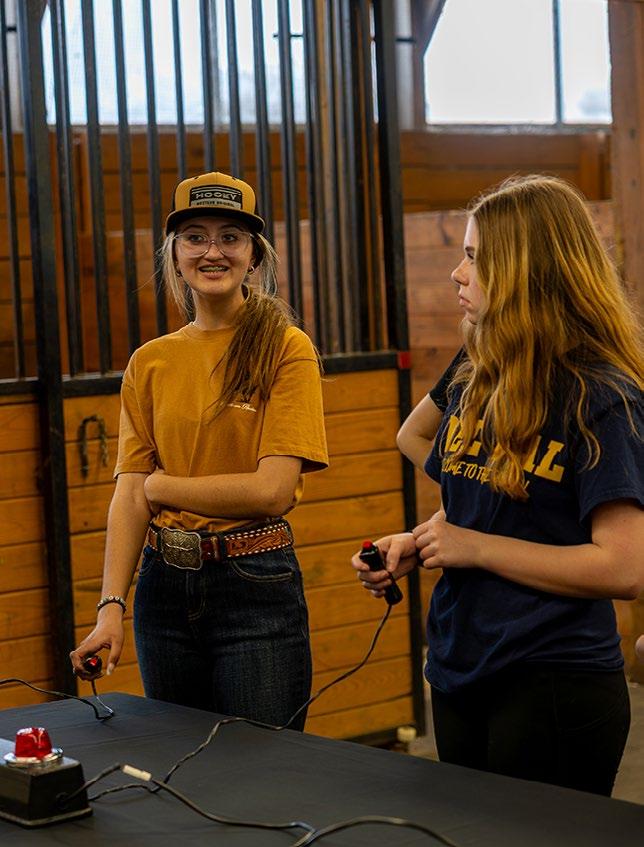
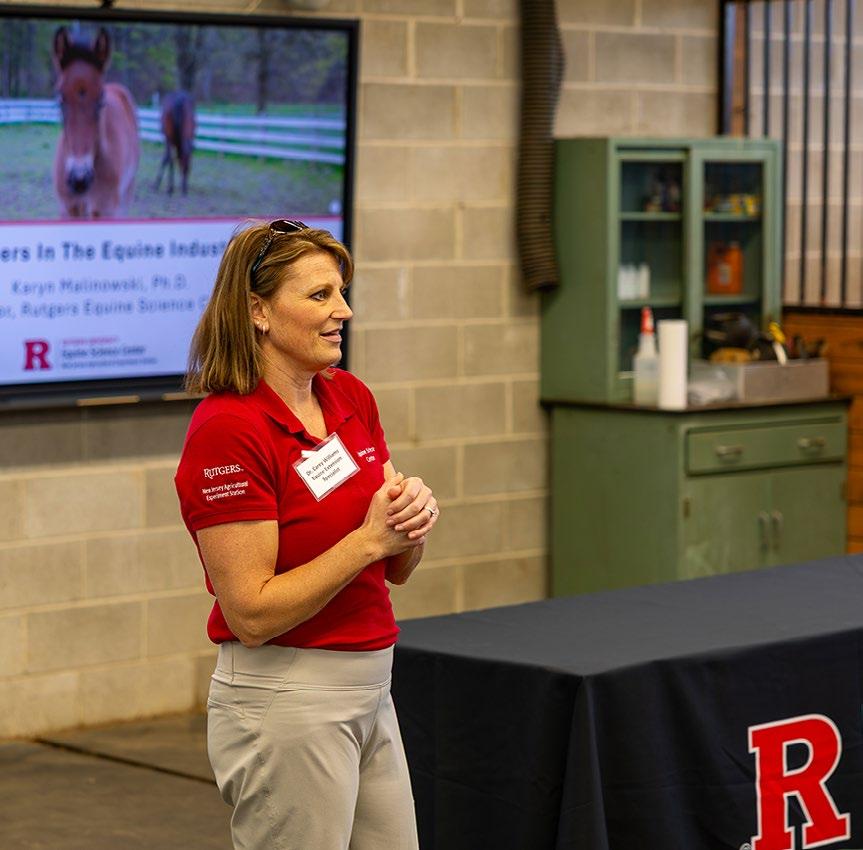
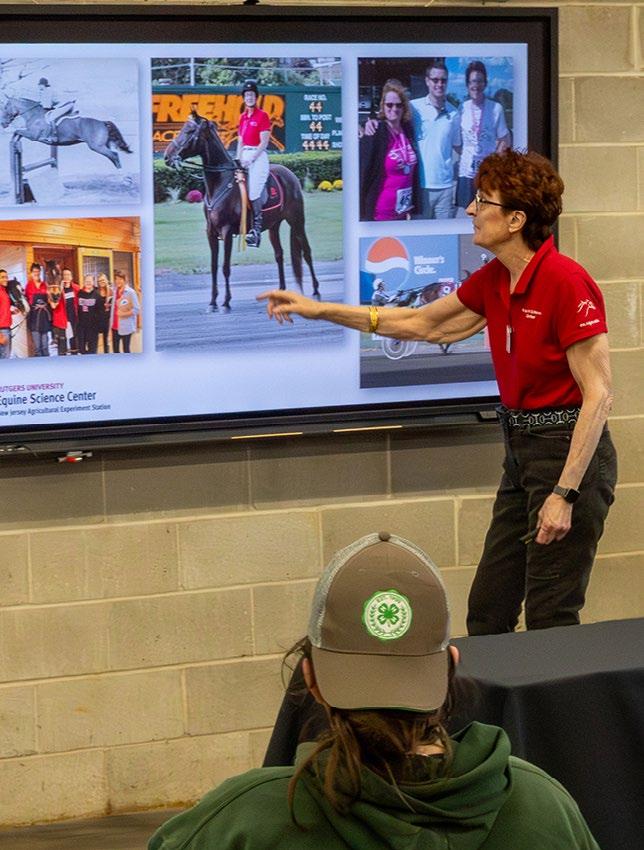
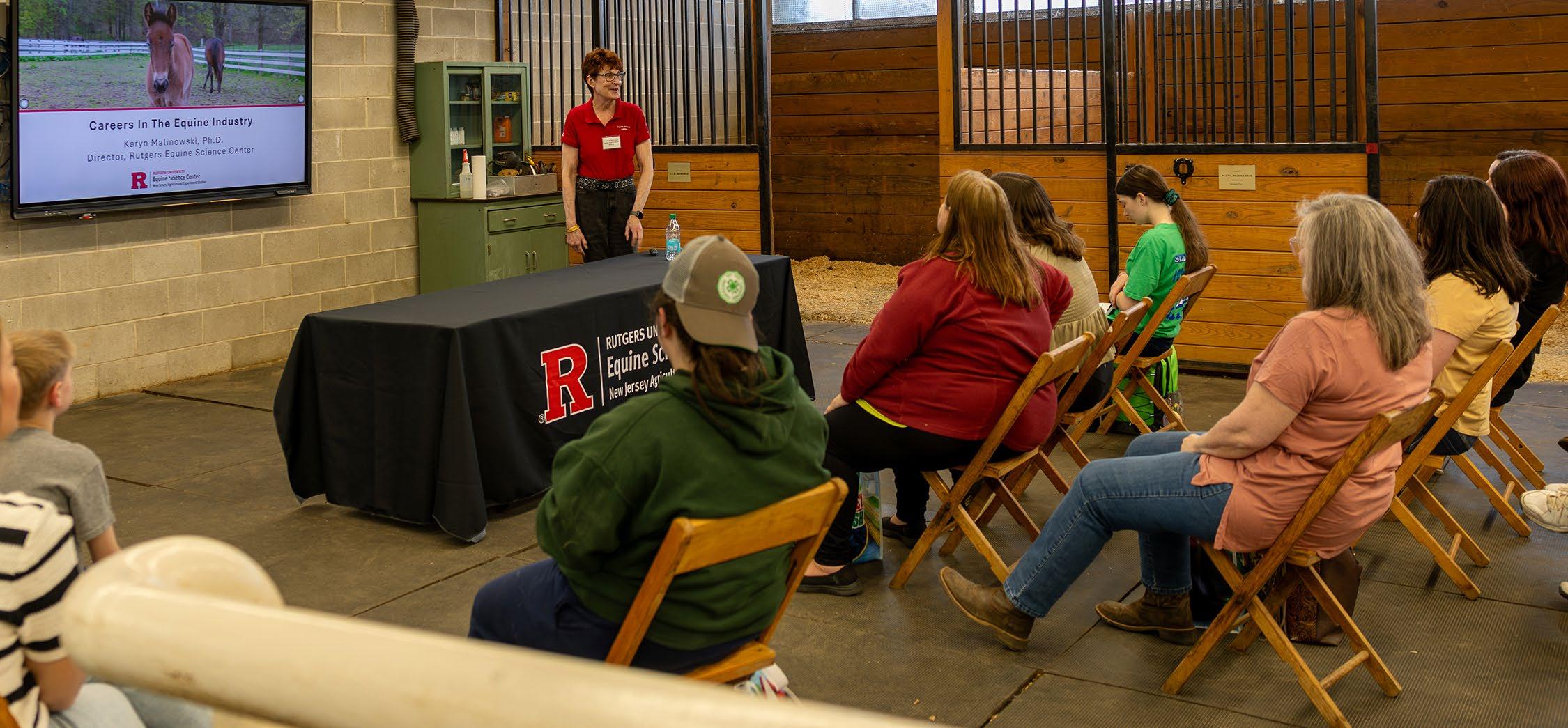

Dr. Karyn Malinowski was again invited to be a guest speaker for the New Jersey Agricultural Leadership Development Program, one of her favorite talks to give each year.
The two-year program, hosted in collaboration with Rutgers University and the New Jersey Agricultural Society, consists of ten residential seminars in New Jersey each 2-3 days long, as well as two out-of-state trips.
Participants learn from experts in their fields, meet with government and business leaders at every level, and take field trips for a first-hand view of the issues at hand.
Throughout the process, we provide opportunities for participants to hone their own leadership skills.
Dr. Malinowski’s talk covered some of the many ways that the New Jersey equine industry is vital to New Jersey’s agricultural community through things like hay production, the preservation of open space, and the importance of “equine” as an agricultural commodity.
She also covered economic impact of equinerelated industries such as gaming and tourism, and how the equine industry affects them.
Attendees were then given a tour of the Equine Exercise Physiology Laboratory, as well as a HighSpeed Treadmill Demonstration.
They rounded out their day with a photo-op outside of the lab, joined by the students, staff, and horses from the Equine Science Center.
Cook Farm College Farm Road New
APRIL 26 10:00AM -4:00PM
Cook Farm/Red Barn
1:00PM & 2:00PM
Arrive 30 Min Early
watch a horse run on a highspeed treadmill and learn about the research and education conducted by the center
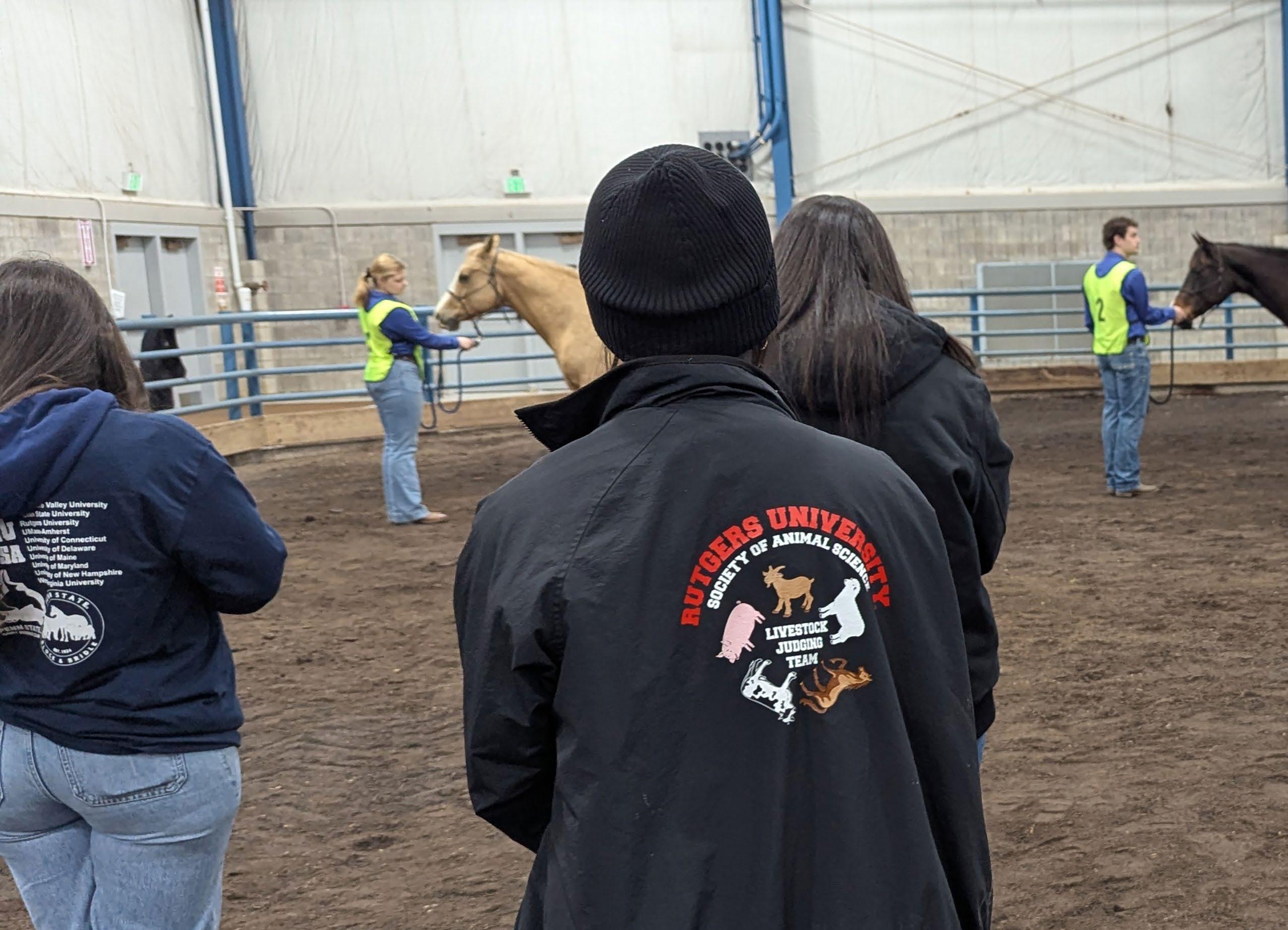
Every year Rutgers’ students interested in Animal Science participate in a competition held in the Northeast region for the American Society of Animal Science and The American Dairy Science Association, known as the NESA (Northeast Student Affiliate) Competition.
This year, NESA was hosted by Pennsylvania State University on Saturday, March 1st.
Nine regional schools participated (Rutgers, University of Connecticut, University of New Hampshire, University of Maryland, University of Massachusetts – Amherst, University of Maine, University of West Virginia, University of Delaware, and Delaware Valley University), with a total of 33 teams of four students on each.
Rutgers had 3 teams with 4 students on each team for a total of 12 students participating in
the three phases of the competition (see below for participating students).
The morning of the competition started with a Livestock Judging phase at the university farm, where students judged 6 different livestock classes: Dairy, Beef, Horses, Sheep, Pigs, and a surprise class that is announced at the competition.
The surprise class can be anything agriculturally related. In past years the surprise class ranged from Labrador Retriever dogs, dairy goats, tobacco leaves, miniature donkeys, cuts of meat, oysters, poultry (various breeds), hazelnuts, honey and slides of live goat sperm!
This year’s surprise class was deer antlers due to the large whitetail deer herd that Penn State maintains for research – the antlers judged solely on their measurements, about 7 different measures
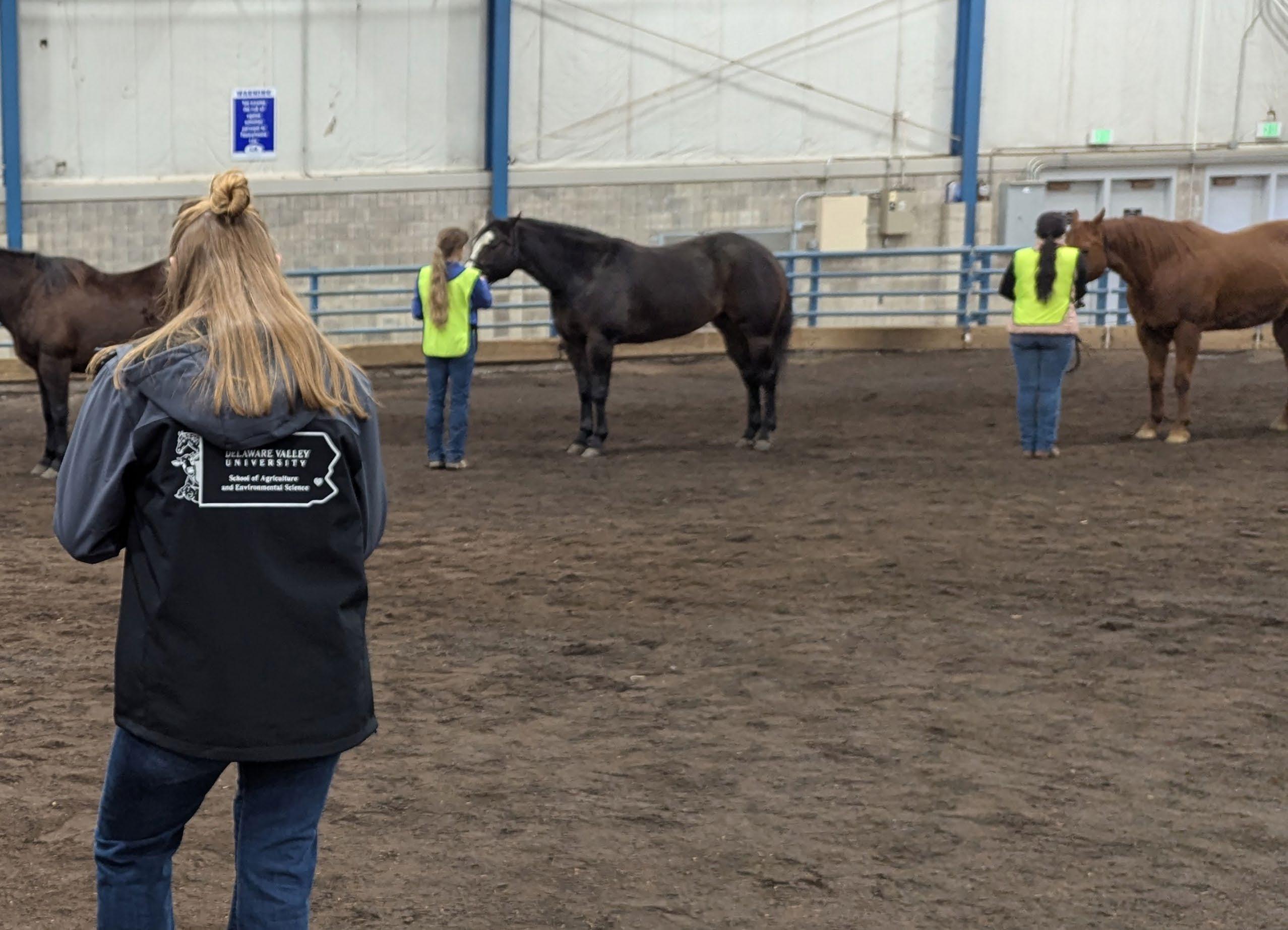
are added up and the largest sum wins!
After the judging phase, students returned to the university campus to compete in a quiz bowl phase of animal science-related questions.
Each team of 4 went head-to-head with another team from a different university in a bracket system until only 2 of the teams remained for the final round of questioning.
At the same time as the quiz bowl competition, Paper Presentations were taking place where one student from each team prepared an 8-minute presentation to review an animal science research paper or topic of their choice.
The scores for these three phases of the competition were combined for a total team score and all individual team scores were combined for an overall University Score.
We are proud to say that a largely inexperienced team did very well, and we look forward to working with them all in future years.
Overall Rutgers finished 7th out of 9 competing schools. “Team C finished 4th in Quiz Bowl out of 33 teams,” said Dr. Carey Williams. “To have a team in the Final Four is outstanding!”
Aishika Ghante was in a 4-way for 7th place, but because of the tiebreaker class, ended up 11th. “Out of the 132 students competing this is extremely commendable,” continued Dr. Williams. “I’m so proud of how our students did this year, and can’t wait to see what they accomplish next time!”
Next year’s competition will take place at the University of Connecticut, then everyone get ready.... RUTGERS is up to host in 2027!


Ostarine administration did not seem to affect indicators of heart health, gastrointestinal health, or depression status in adult or senior horses.
Ostarine does not appear to change muscle mass in meaningful amounts in mature or senior horses.
In 1940, the first efforts were made to modify the testosterone molecule to create so-called “selective androgen receptor modulators” (SARMS).
In the past 25 years the interested in SARMs increased exponentially and multiple SARMs have been developed with the goal of treating muscle wasting conditions without the sideeffects of testosterone therapy, such as breast or prostate enlargement, or blood clots.
Ostarine is one of these SARMs and has been tested extensively to treat muscle wasting in elderly people. Unfortunately, ostarine has not passed all required tests and is therefore currently not approved as a medication.
Although illegal, there have been reports of ostarine use in human athletes and racing horses, where this drug was likely administered with the intent to increase muscle mass and enhance physical performance.
It is, however, currently unclear if ostarine truly enhances muscle mass in horses and whether it is causes any negative-side effects.
If the drug is safe to use and able to
enhance muscle mass, it could be a candidate for treatment of muscle loss in elderly horses.
To shed light on these questions, scientists at the Rutgers Equine Science Center undertook two studies, one in adult and one in old horses to learn about the effects of ostarine on body composition and any potential adverse health effects.
In the study using adult horses, ostarine in ethanol was given by injection at a high dose, 4 times a week for 4 weeks on non-consecutive days. A control group received injections of only ethanol at the same times.
All horses were monitored before the study, during the injection period and for 4 weeks after the last injection.
In the senior horse study, a lower dose of ostarine in ethanol was given by injection daily for 4 weeks.
Control horses received ethanol injections at the same times. Both groups were monitored prior to, during, and after the injection phase.
Preliminary results from both studies are shared in the top 5 take-aways below.

#3 #4 #5
Ostarine does not seem to affect body condition scores in adult or senior horses.
Intravenous injections of ethanol as part of ostarine administration might cause liver damage in horses.
Resting respiratory rate might be reduced to below normal levels in senior horses receiving ostarine.
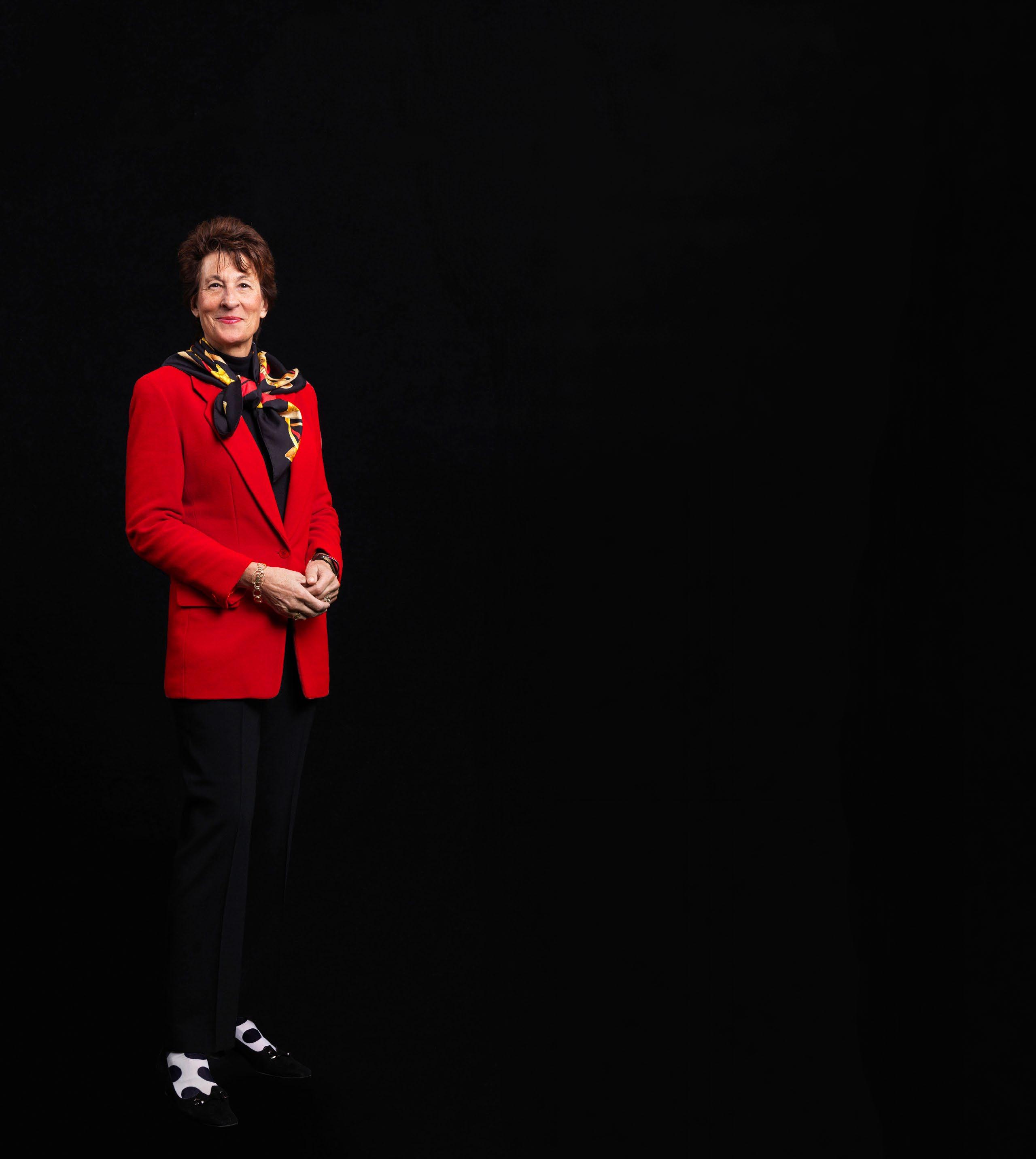
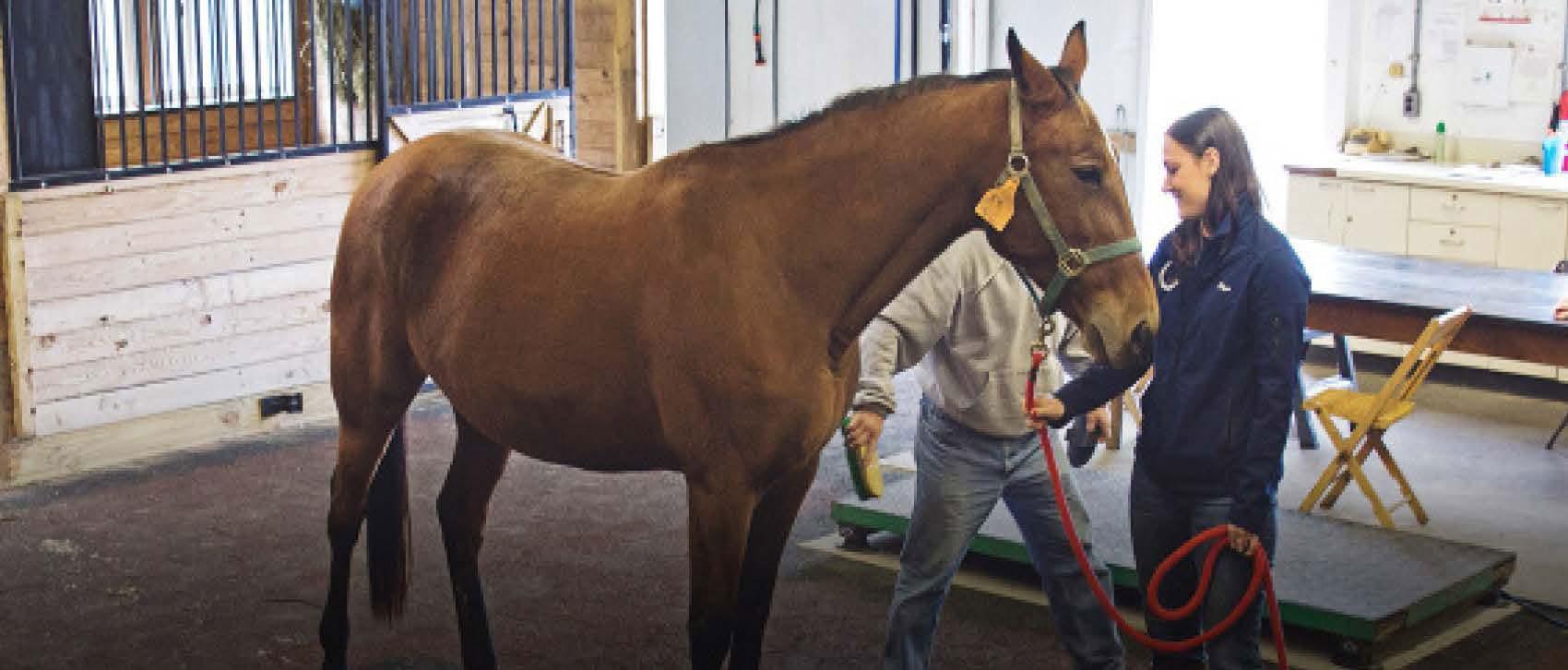
The Equine Science Center has extended the application due date for the Doris C. Murphy Scholarship until June 1st, 2025 for this year.
The scholarship(s) will be awarded for the following academic year. Please see the application form on the right and scholarship details below.
Rutgers Equine Science Center and the Department of Animal Sciences at the School of Environmental and Biological Sciences at Rutgers, The State University of New Jersey, are pleased to announce the availability of financial assistance to undergraduate women who are New Jersey residents majoring in Animal Sciences with a concentration in Equine Science.
Scholarships will be awarded annually to full-time undergraduate Rutgers University students (including at least one incoming student).
Criteria include New Jersey residency, acceptance or current enrollment at the School of Environmental and Biological Sciences, academic merit, financial need, and demonstrated interest in equine science. Scholarships may be renewed annually with the approval of the scholarship selection committee.
The Doris C. Murphy Endowed Scholarship in Equine Science was created to honor the memory of a woman who loved animals. Ms. Murphy was born in Jersey City, moved to Dumont, and worked for the Ford Motor Company in Newark.
She and her husband had no children, and shortly before her death in 1998, she contacted her financial advisor, Kate Sweeney of Morgan Stanley and expressed her desire to support animal studies.
Ms. Sweeney, a Cook College alumna, suggested the equine science program as an appropriate beneficiary, and as Ms. Murphy was also very supportive of women’s education, the endowed scholarship is offered to women students majoring in Animal Sciences with an equine science interest. Thus, the scholarship reflects Doris C. Murphy’s love of animals and her deep interest in encouraging young women to complete their academic studies.
To Apply for the scholarship, please go to: go.rutgers.edu/murphyscholarship
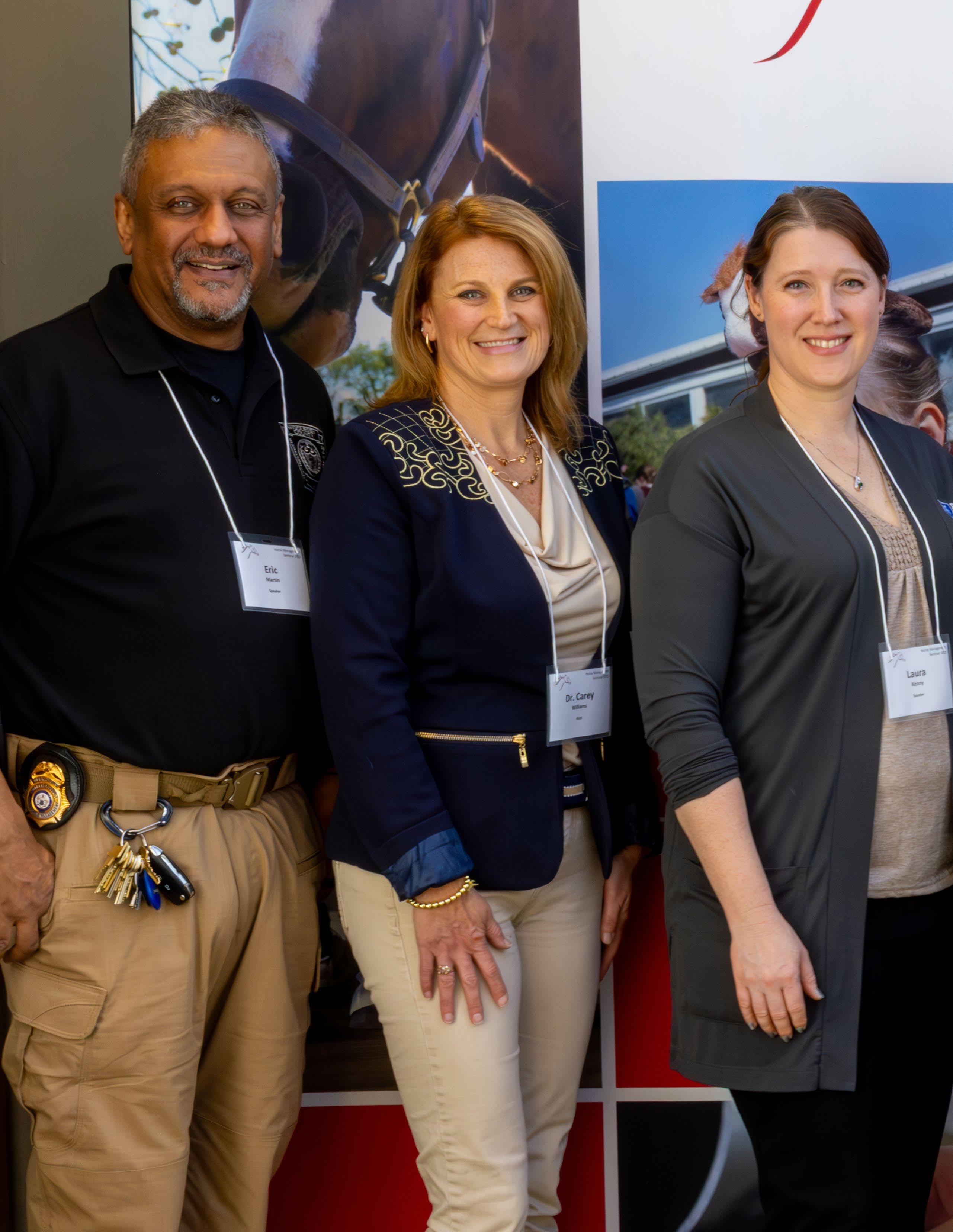
The over-arching theme for this year’s Horse Management Seminar: Live! was “Emergencies, Pasture, and Pain… Oh My!”
Hosted by the Rutgers Equine Science Center and Rutgers Cooperative Extension, attendees gathered at the Cook Student Center on February 1st for a fun-filled day of learning.
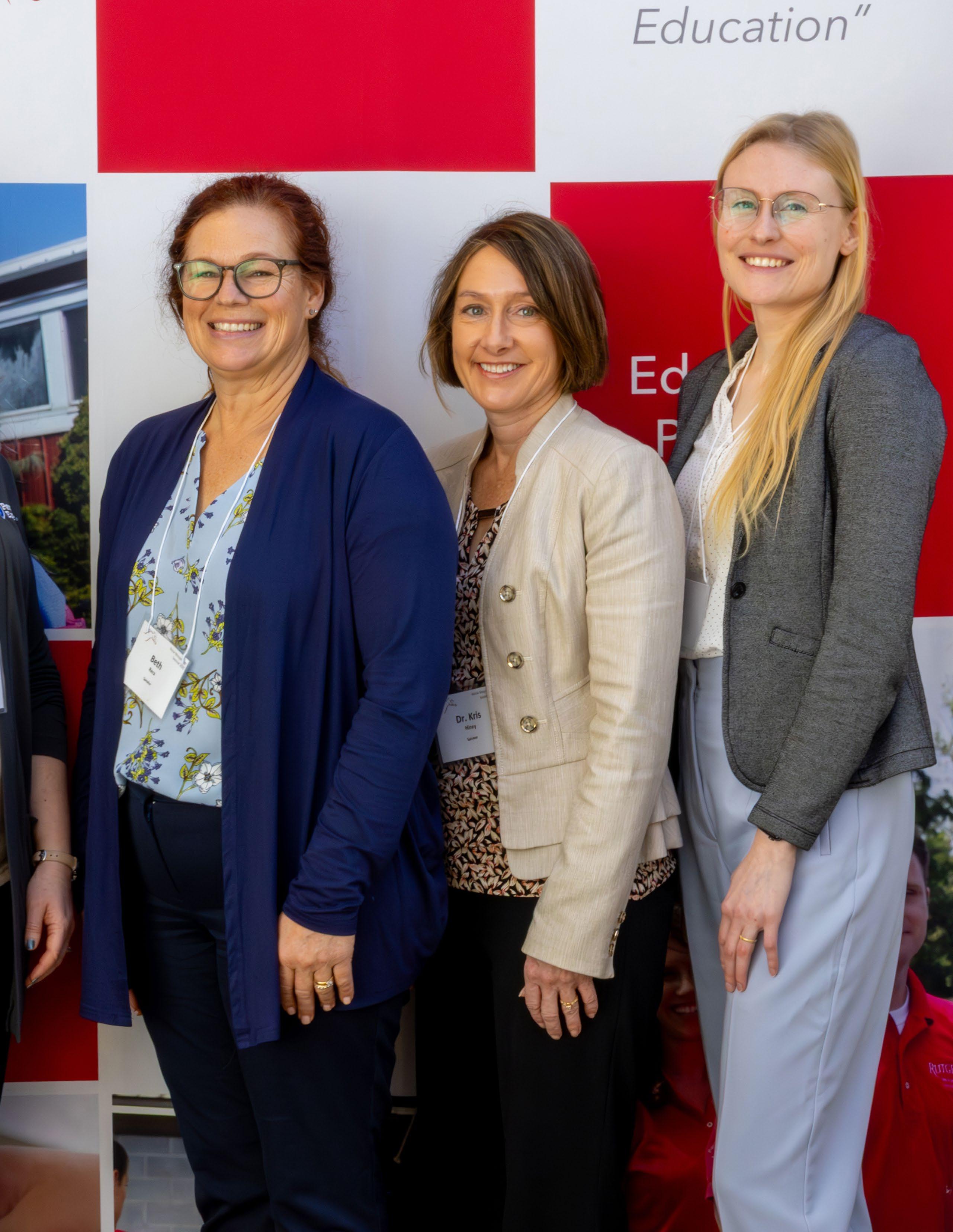
The seminar featured some of the most commonly asked-for topics from the seminars (live and virtual) in 2024.
Between the speakers, vendors, and student volunteers there were well over 60 equineenthusiasts converging on campus.
Vendors included Purina, and Triple Crown, with Farm Family also one of the sponsors of
Attendees were treated to a wide variety of talks from a variety of speakers at this year’s Horse Management Seminar. From professors, to extension agents, to search and rescue personnel, this year’s talks ran the gamut of interesting and unique topics.
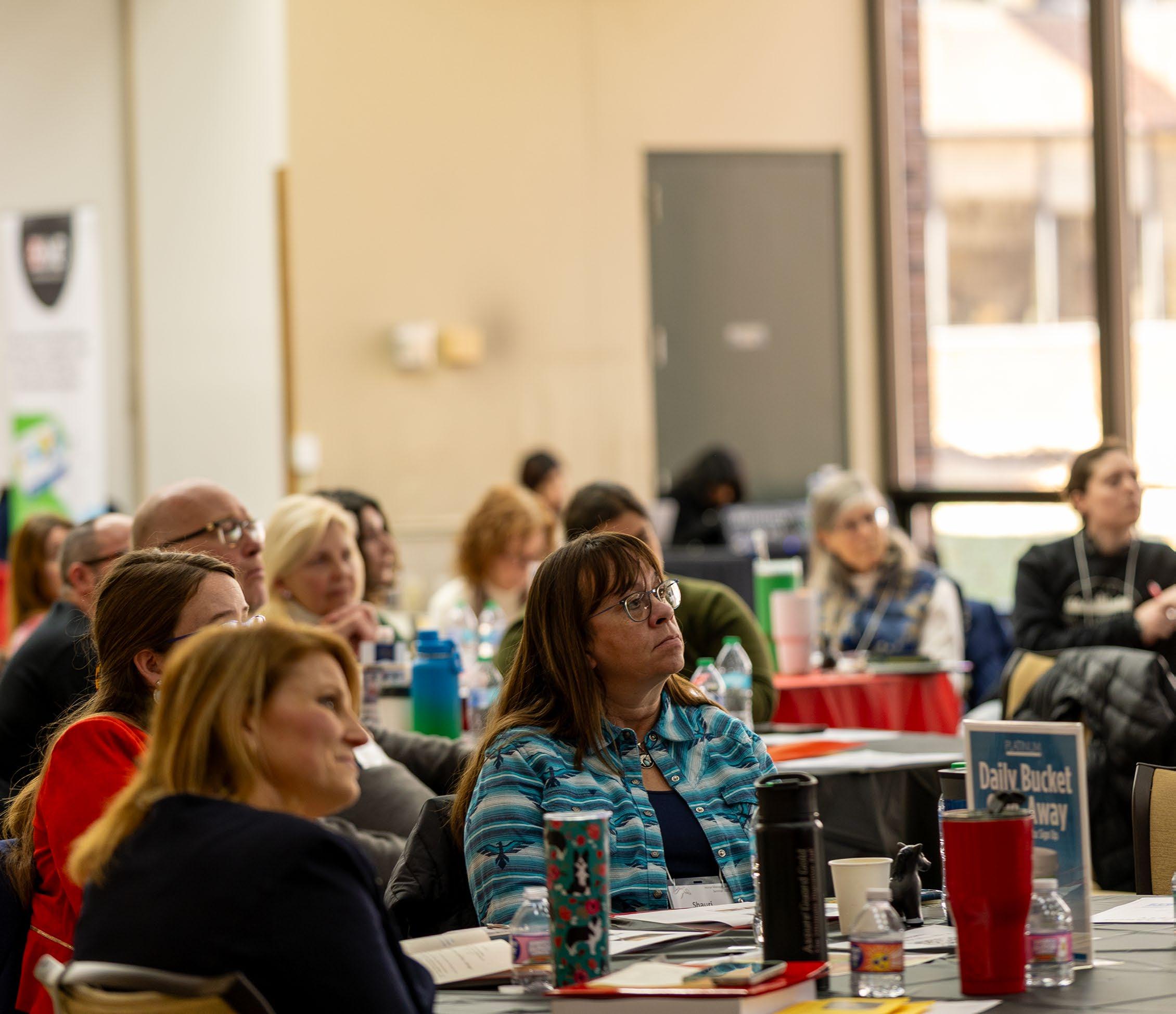
this year’s event.
The day was filled with educational talks, door prizes, visiting with the vendors and networking with other farmers and the speakers.
Presentations included “Emergency Preparedness: Many Teams…One Mission” by Eric H. Martin, Operations & Training Officer - Middlesex County Office of Emergency Management; “Small Farm Pasture Management” by Laura Kenny, Penn State Cooperative Extension; “Evaluating Pain in Horses” and a follow-up to that, “Evaluating Pain in Horses while Riding” by Dr. Kris Hiney, Oklahoma State University; “Basic
Saddle Fitting to Reduce Pain in Horses” by Beth Rera, Master Saddle Fitter, Journeyman Farm; and “Health & Management of US Senior Horses” by Dr. Alisa Herbst, Rutgers University.
“I’m looking forward to reading everyone’s surveys to see what they are interested in for next year’s topic,” Dr. Carey Williams, the main organizer of the event. “We might also change up the venue, or the format,” she continued, “We are always looking to try out new ideas to keep things interesting for all of our attendees, vendors, sponsors, and speakers!”
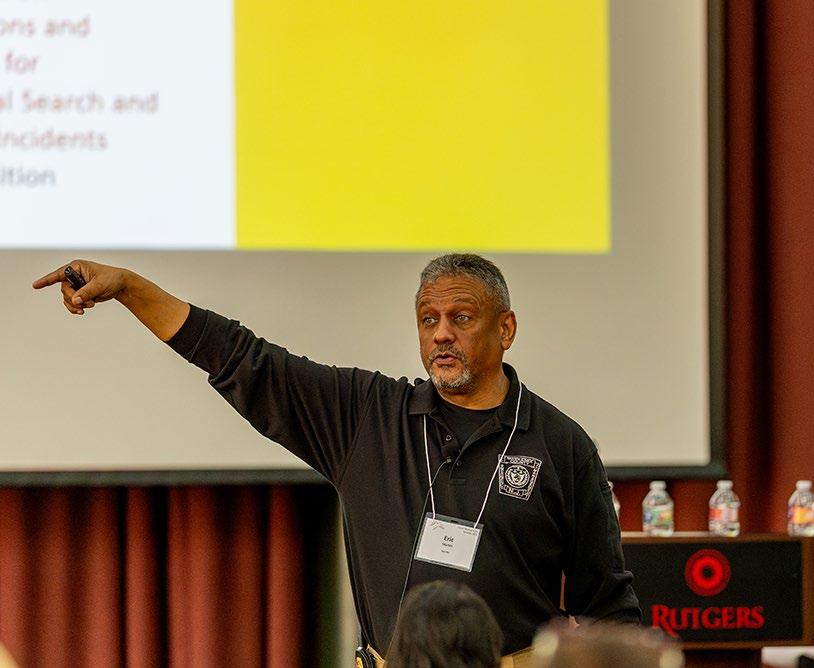
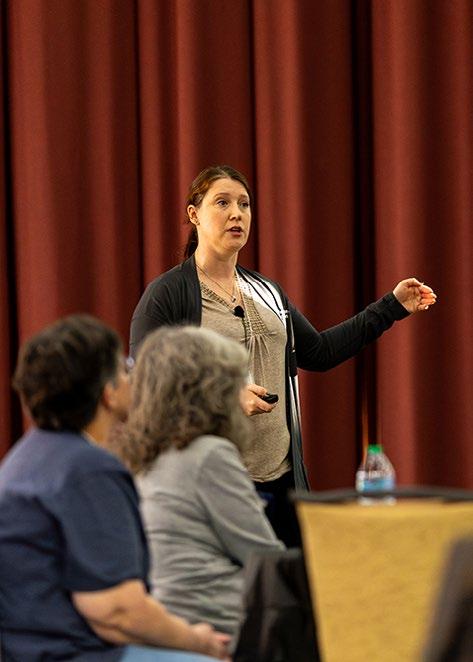
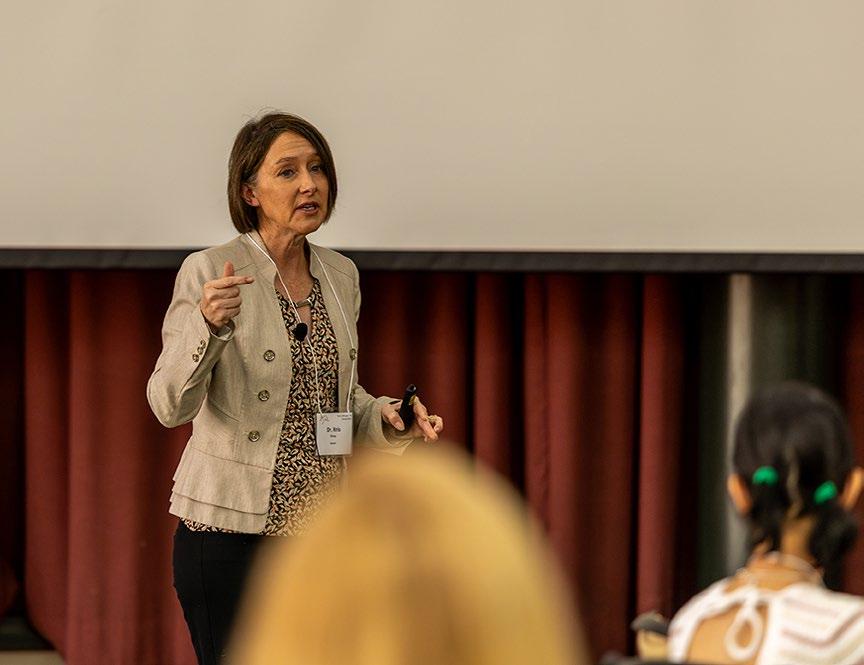
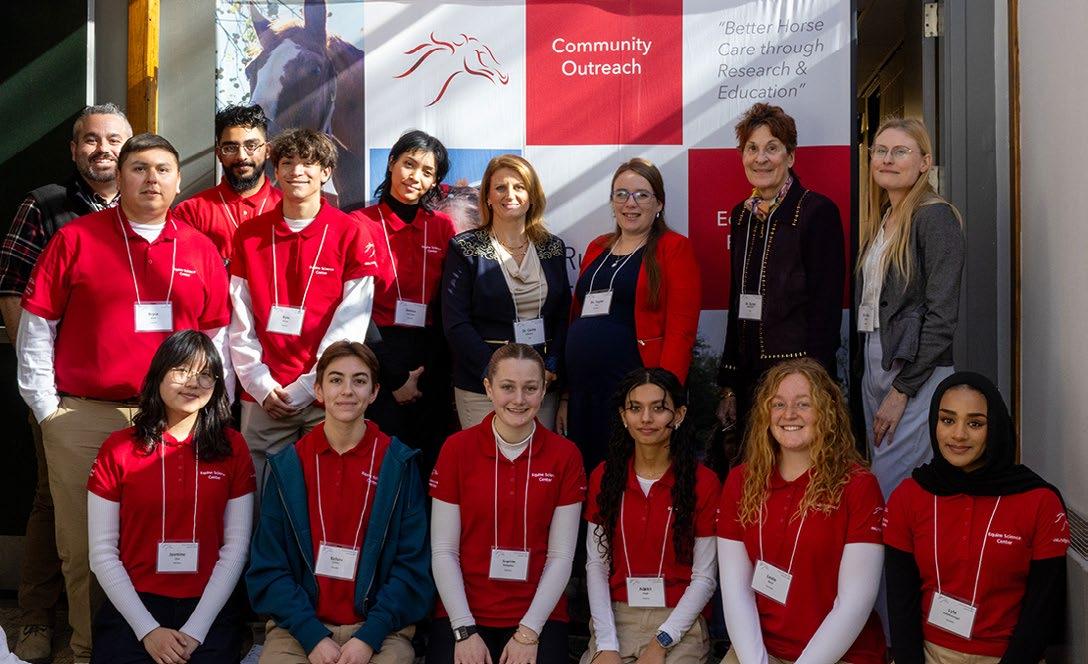
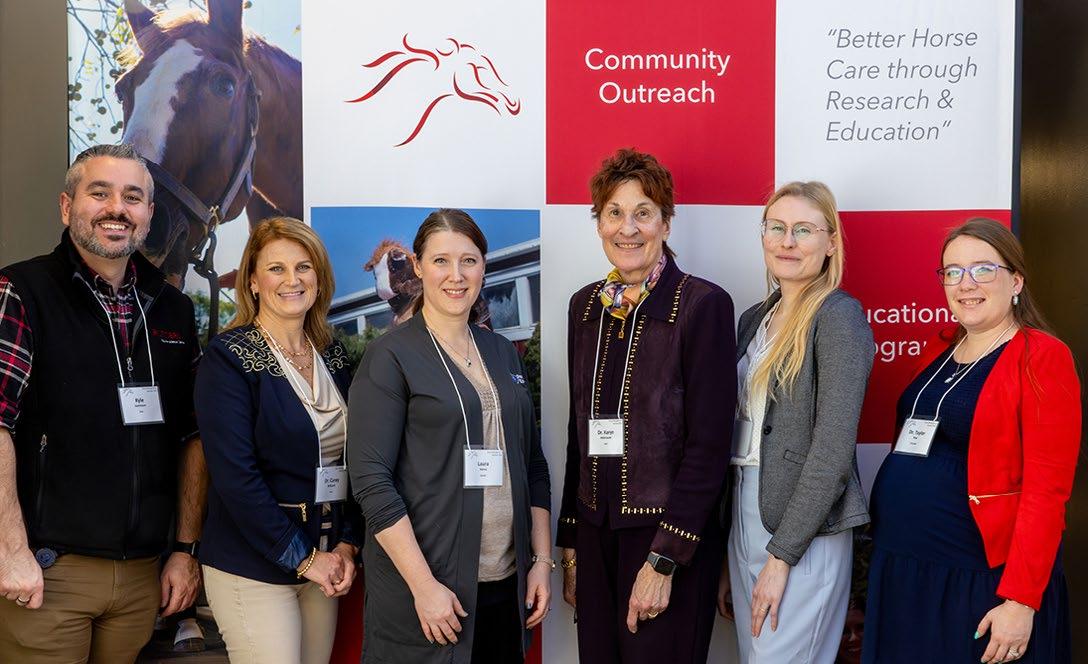
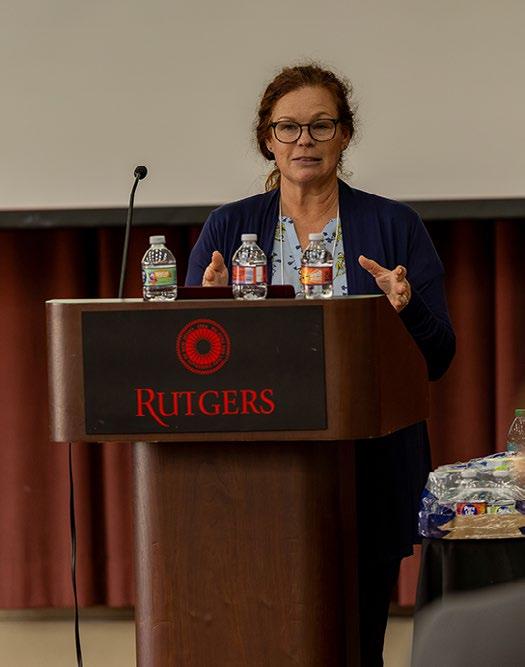
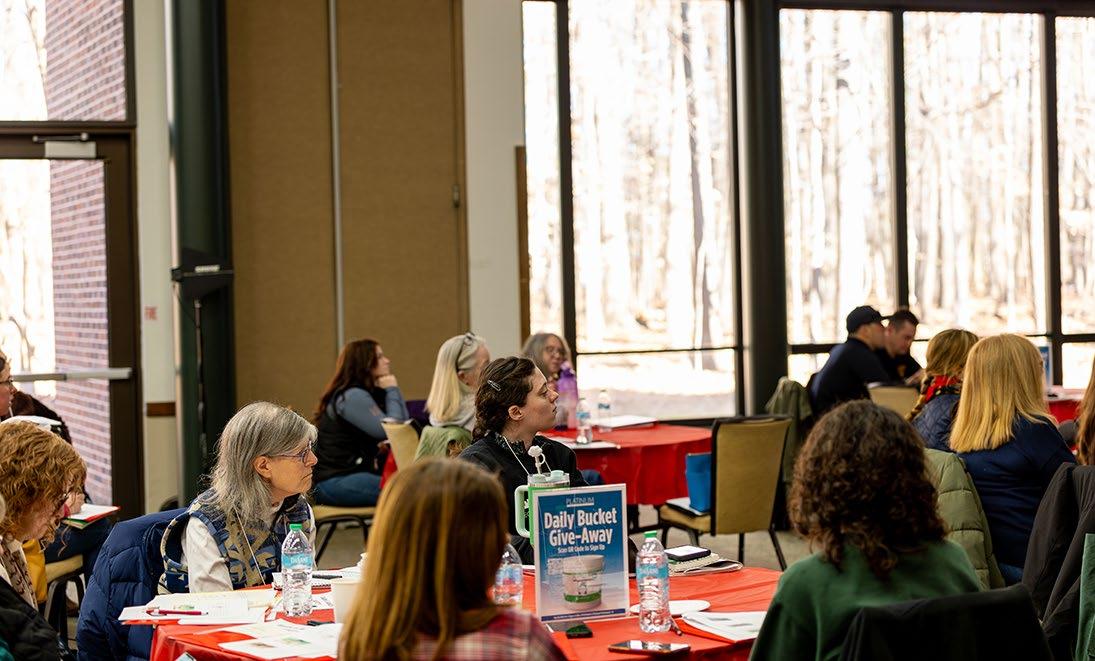
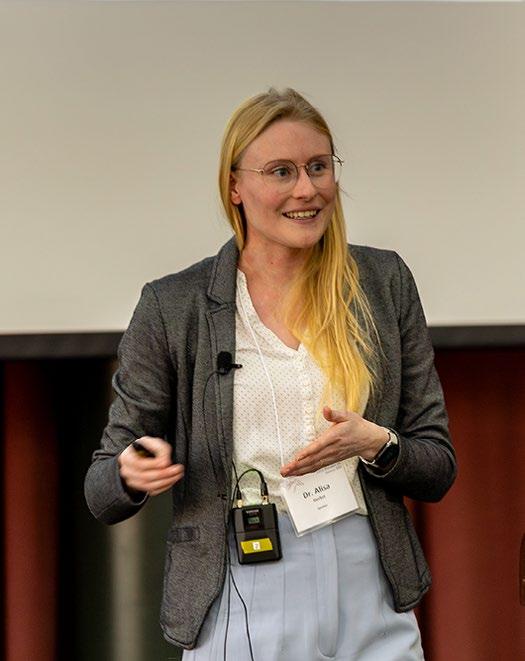
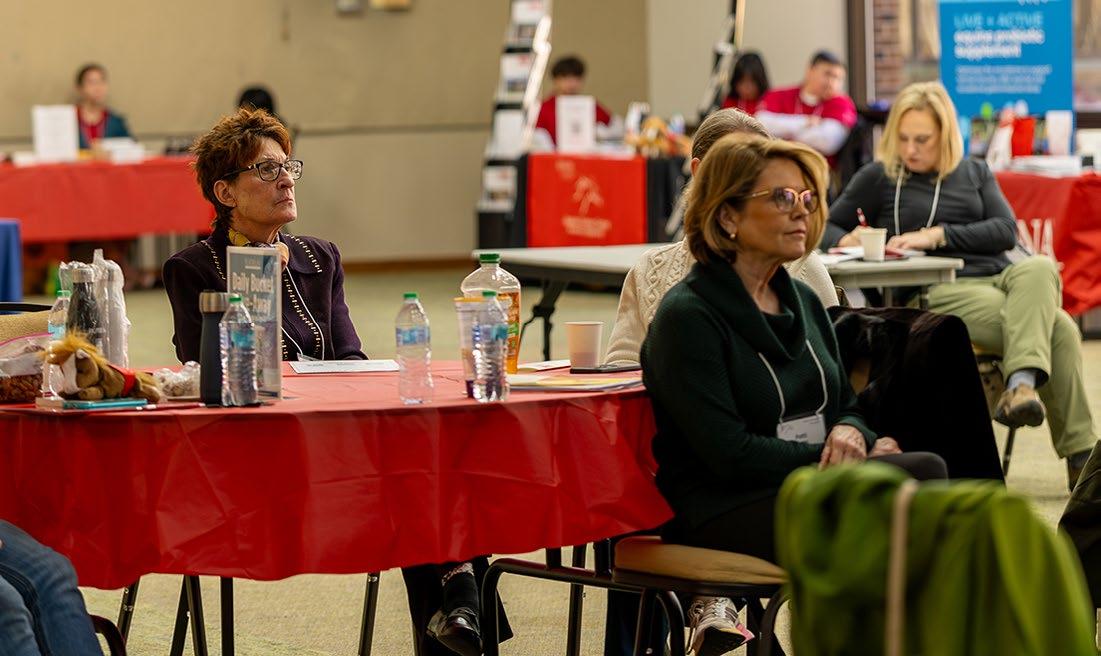
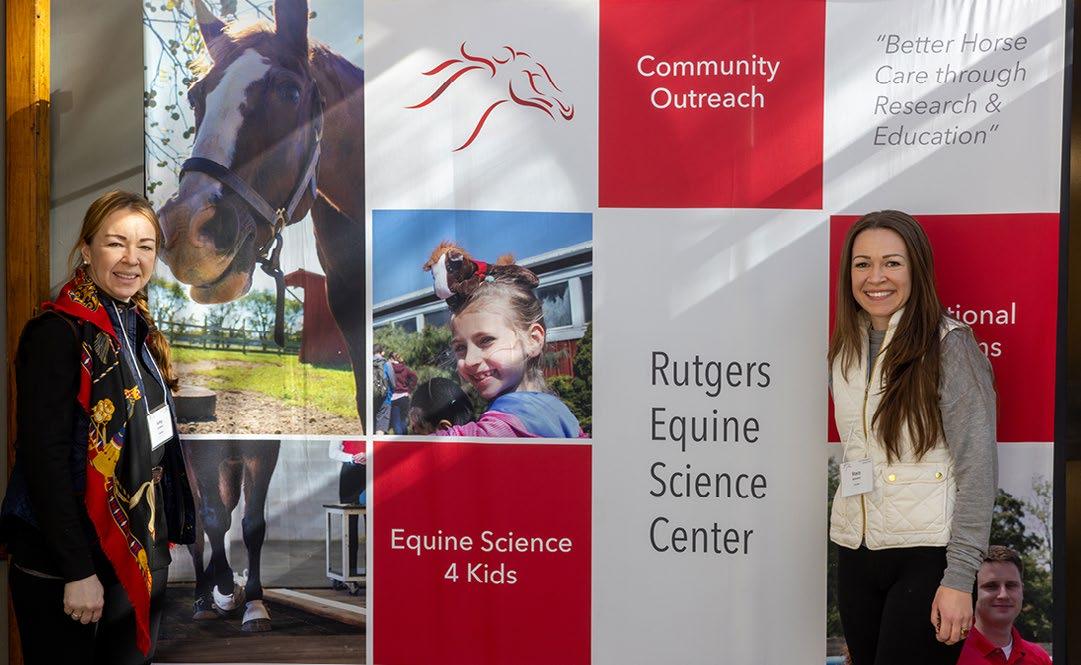

The virtual Horse Management Seminar took place over three Tuesday evenings in February.
With a full list of speakers from across the U.S. the Center was proud to host another great webinar series.
Each night, during each of the three webinars, the Center was joined by over 200 participants all tuning in live to learn about the latest in equine research.
The “Farm Management” session brought together Ms. Laura Kenny, from Penn State University, who spoke on “Small Farm Pasture Management;” and Dr. Krishona Martinson from the University of Minnesota, and Dr. Betsy Greene
and Anita Thompson from the University of Arizona, who spoke on “Plants Toxic to Horses in the North and South US.”
The “Nutrition” session brought together Dr. Jennie Ivey, from the University of Tennessee, who spoke on “Basic Horse Nutrition;” and Dr. Erica Macon, from Texas A&M University, who spoke on “Specific Nutritional Considerations for Equids with Endocrine Disease.”
The “Horse Health & Welfare” session brought together Dr. Alisa Herbst, from Rutgers University, who spoke on “Health & Management of US Senior Horses;” and Dr. Kris Hiney, from Oklahoma State University, who spoke on “Evaluating Pain in your Horse while Riding.”
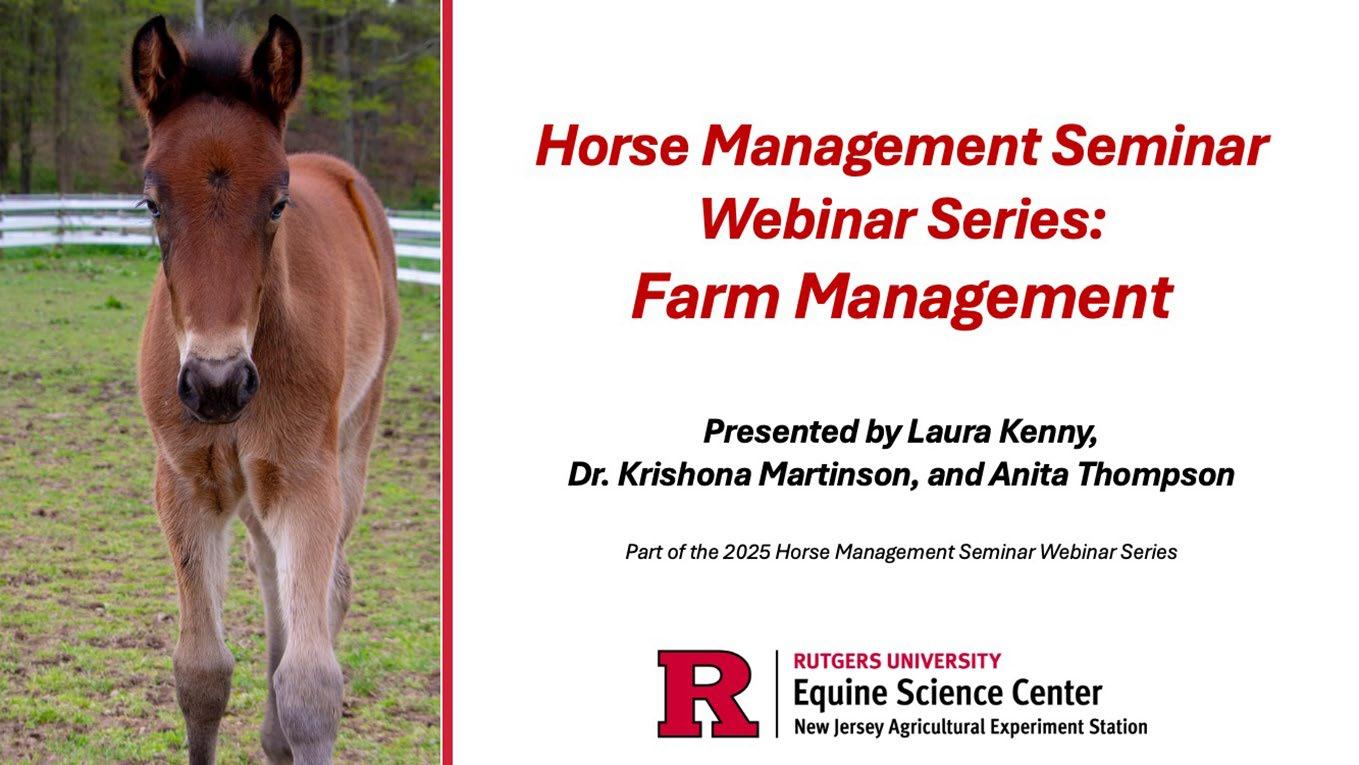
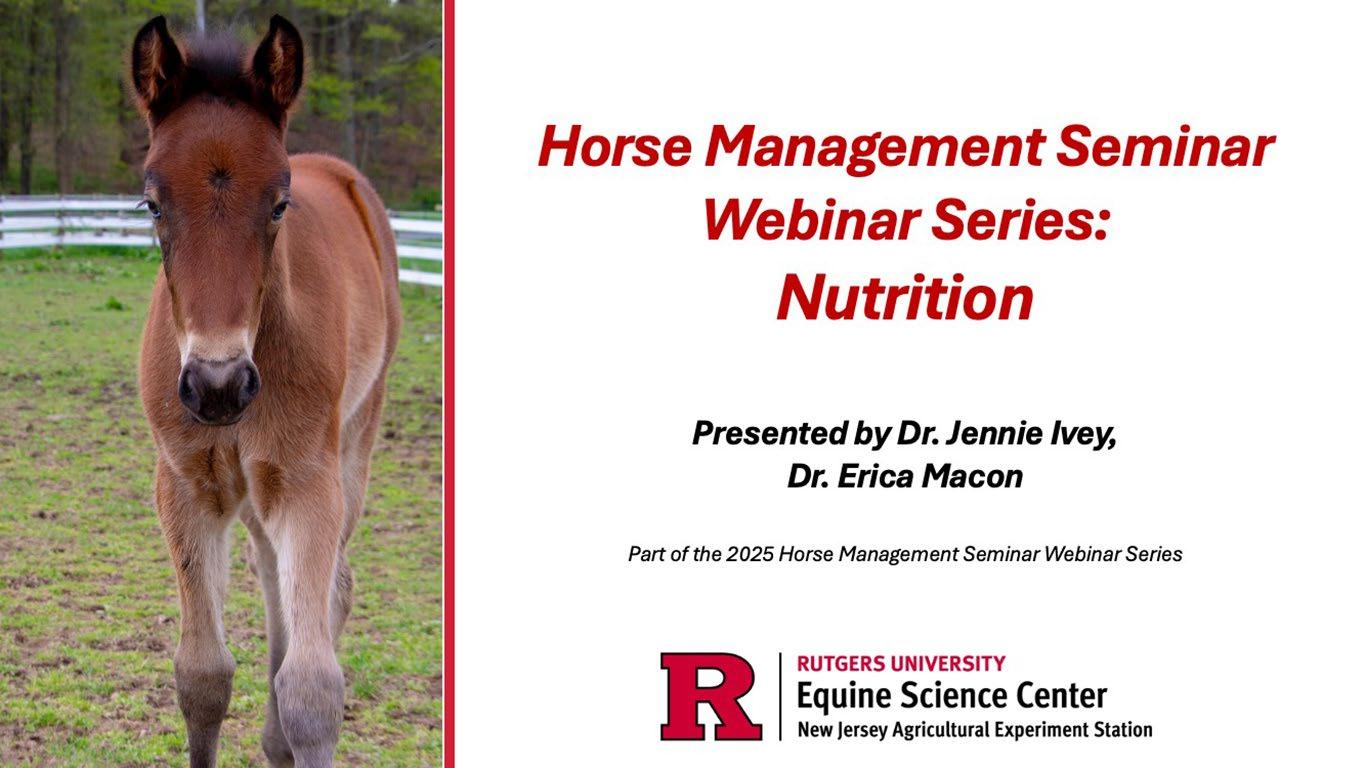
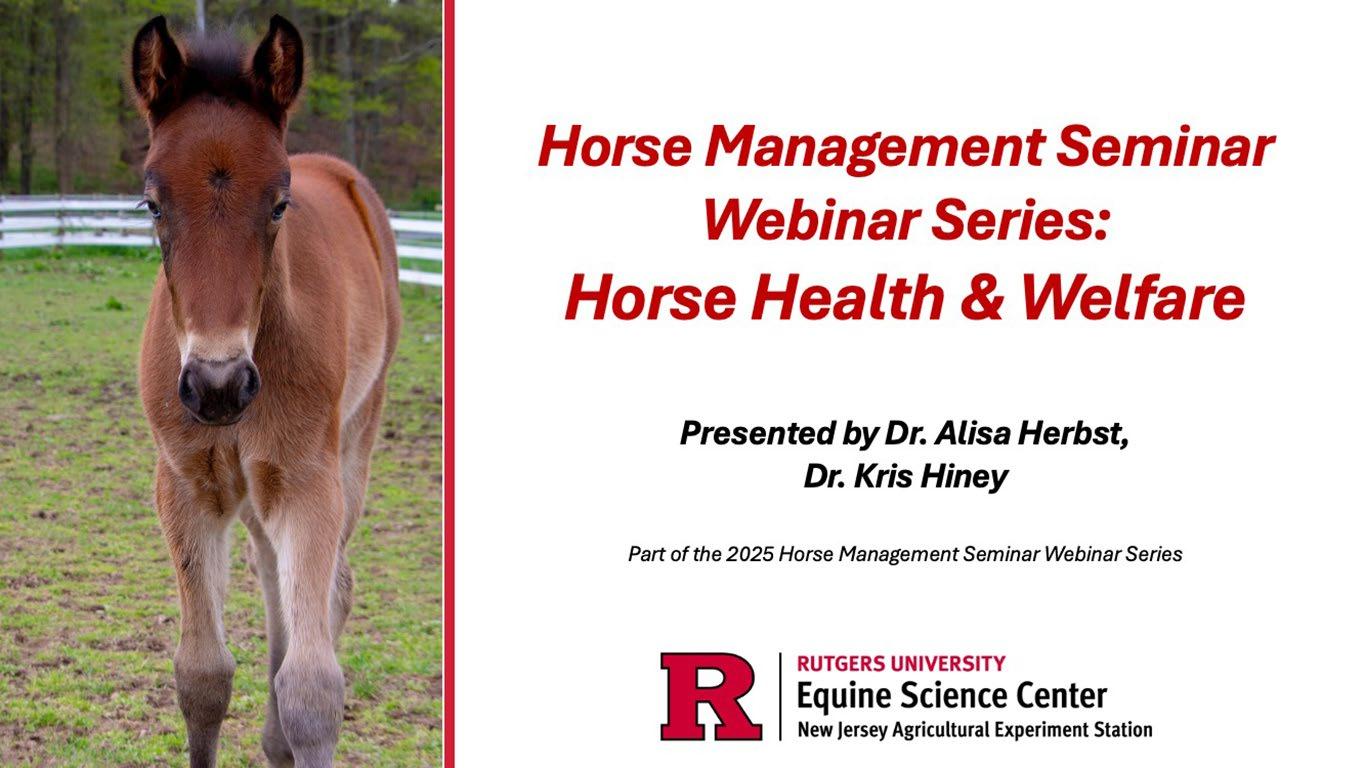
For all 3 recordings in one place, please visit: https://esc.rutgers.edu/news/2025hmsws/
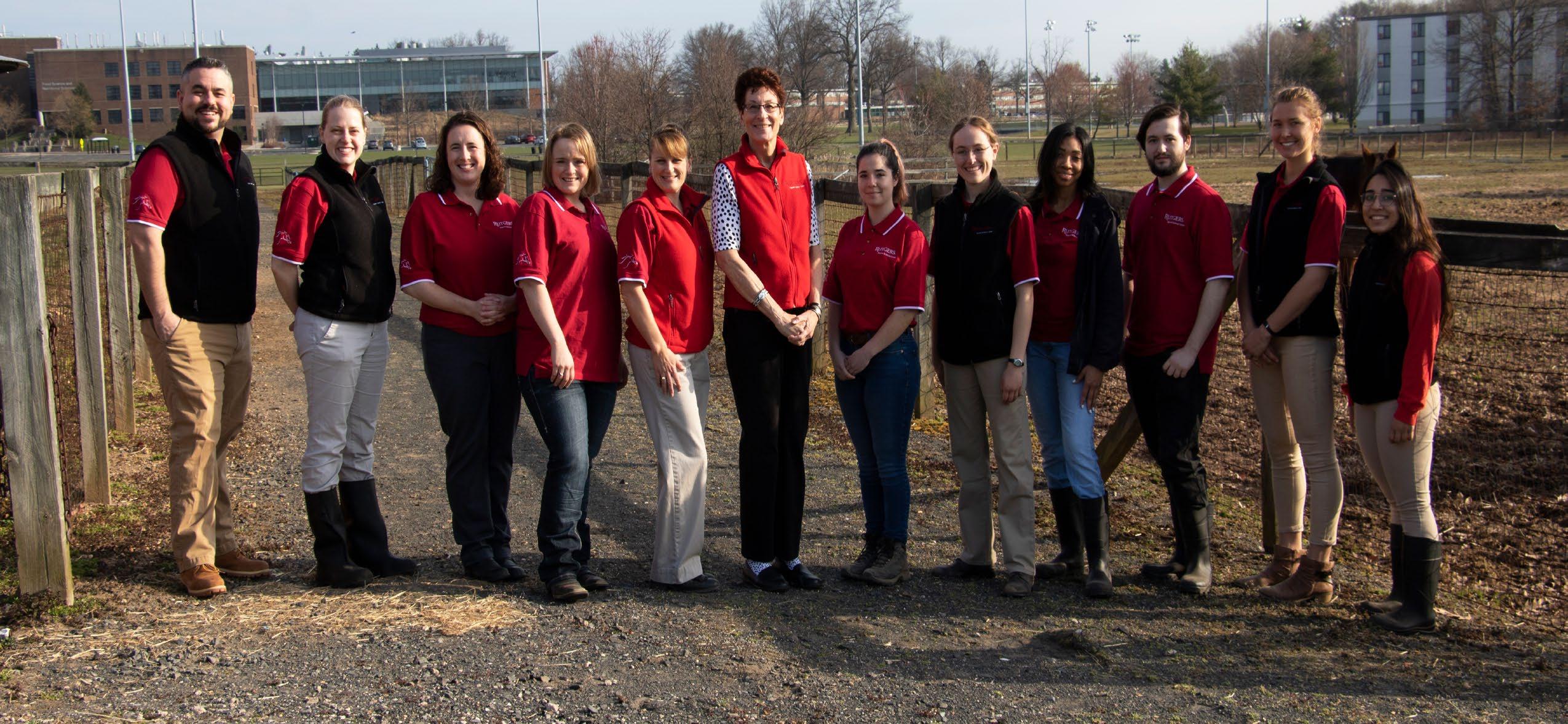
The Equine Science Center is happy to announce the first-ever application cycle for the Ronald S. Dancer Memorial Scholarship, due June 1st, 2025 for this year.
The scholarship(s) will be awarded for the following academic year. Please see the application form link on the right, and the scholarship details below.
Rutgers Equine Science Center and the Department of Animal Sciences at the School of Environmental and Biological Sciences at Rutgers, The State University of New Jersey, are pleased to announce the availability of financial assistance to undergraduates majoring in Animal Sciences with a concentration in Equine Science.
Scholarships will be awarded annually to fulltime undergraduate Rutgers University students (including at least one incoming student).
Criteria include New Jersey residency, acceptance or current enrollment at the School of Environmental and Biological Sciences, academic
merit, demonstrated interest in equine science, and demonstrated leadership and service to community, school, and to the horse industry. Scholarships may be renewed annually with the approval of the scholarship selection committee.
The Ronald S. Dancer Memorial Scholarship in Equine Science was created to honor the memory of a man who tirelessly served the public throughout his tenure as a New Jersey Assemblyman in the state legislature.
Assemblyman Dancer was a strong supporter of the New Jersey equine industry, agriculture in general, and of the Rutgers Equine Science Center. It is only fitting that this scholarship be awarded to a student who demonstrates leadership skills and community involvement following in Assemblyman Dancer’s footsteps.
To Apply for the scholarship, please go to: https://go.rutgers.edu/DancerScholarship
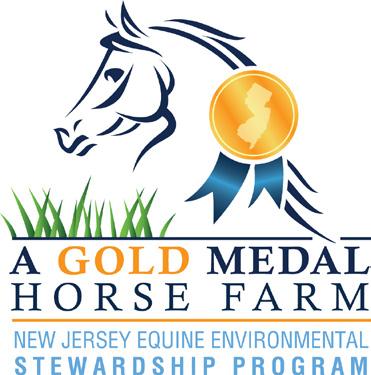
Environmentally friendly farms give the consumer greater confidence in the environmental sustainability of agriculture and encourages public support for the industry. This award gives recognition to the most outstanding equine farms and their environmental sustainability and management.
All New Jersey horse farm owners are invited to submit an application for the award. Farms receiving the highest scores will receive a Gold Medal Equine Farm plaque to be displayed on their farm. Awards will be based upon environmental stewardship, general farm appearance, an implemented AWMP or CNMP, and adherence to the following points:
1. Controlling animal access to the waters of the State;
2. Storing manure at least 100 linear feet from surface waters of the State; “Water or waters of the State means the ocean and its estuaries, all springs, streams, and bodies of surface or ground water, whether natural or artificial, within the boundaries of the State or subject to its jurisdiction.”
3. Applying manure using proper nutrient management practices;
4. Minimizing odors from manure storage and application areas;
5. Optimizing the beneficial use of nutrients from manure and bedding materials;
6. Having a biosecurity program in place to minimize disease risk.
How is the selection completed?
The selection is completed by a pre-determined ranking process that requires both a producer application and an evaluative process.
Selection process
1. Gold Medal Application. Producers need to complete an application that includes general information about their farm (type, horse numbers, acreage, etc.), a copy of their AWMP/CNMP, and a self-assessment of their farm. A $100.00 application fee will be required of all applicants to go towards continuing the program.
2. Review. A team of reviewers will walk through the farm and make recommendations about the farm. These recommendations have two uses: first, to evaluate the farm for suitability for the program, second to point out any deficiencies. The review team will be made up of members from RCE, NJDA, NRCS, and any other appropriate groups such as might be represented on the USDA-NRCS Technical Committee.
3. The award program may be used for subsequent advertising or promotion for environmental stewardship in New Jersey. Horse farmers, who apply to participate in this program, if selected, agree to cooperate with promotional activities and make all reasonable efforts to maintain the level of environmental stewardship on their operations.
1. Formal applications can be obtained from the Rutgers University Equine Science Center. Applications will be due August 1. These will be reviewed for completeness prior to judging.
2. Judging teams will visit farms during the month of September.
3. The judges’ final ranking will be made and results given to the Rutgers University Equine Science Center and the NJDA Division of Agricultural and Natural Resources.
4. Results will be announced at the Equine Science Center Update.
5. Awards will be given at the New Jersey State Agriculture Convention.
6. Any previously awarded farm failing to maintain program standards will have their award revoked.
Karyn Malinowski
Director
Equine Science Center
Phone : 848-932-9419
E-Mail : karynmal@njaes.rutgers.edu
Kyle Hartmann
Manager of Special Programs & Events
Equine Science Center
Phone : 848-932-9419
E-Mail : kylehart@njaes.rutgers.edu
Gabrielle Peterson
Senior Director of Development
School of Environmental and Biological Sciences
Phone : 848-932-3593
E-Mail : g.peterson@rutgers.edu
